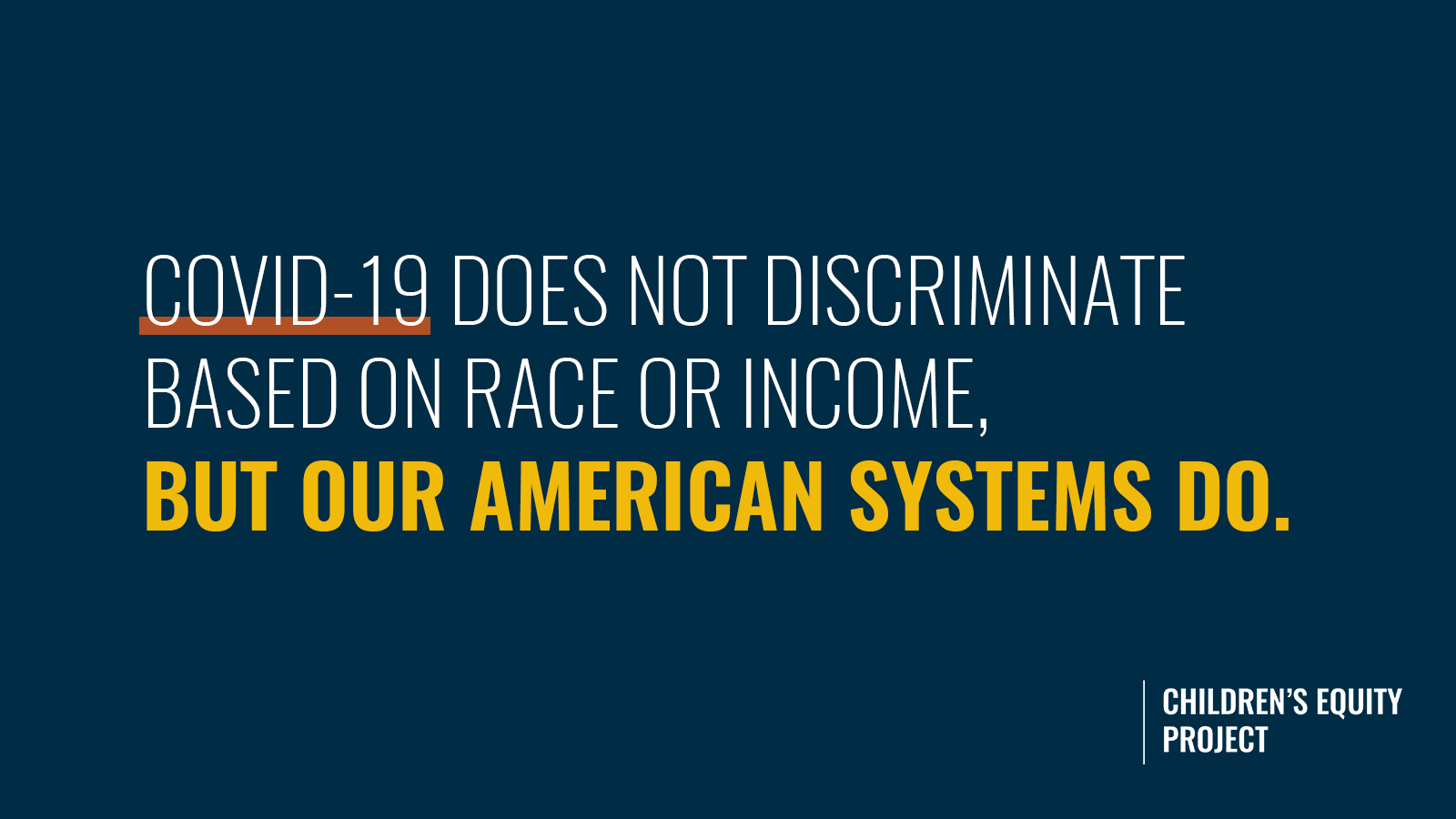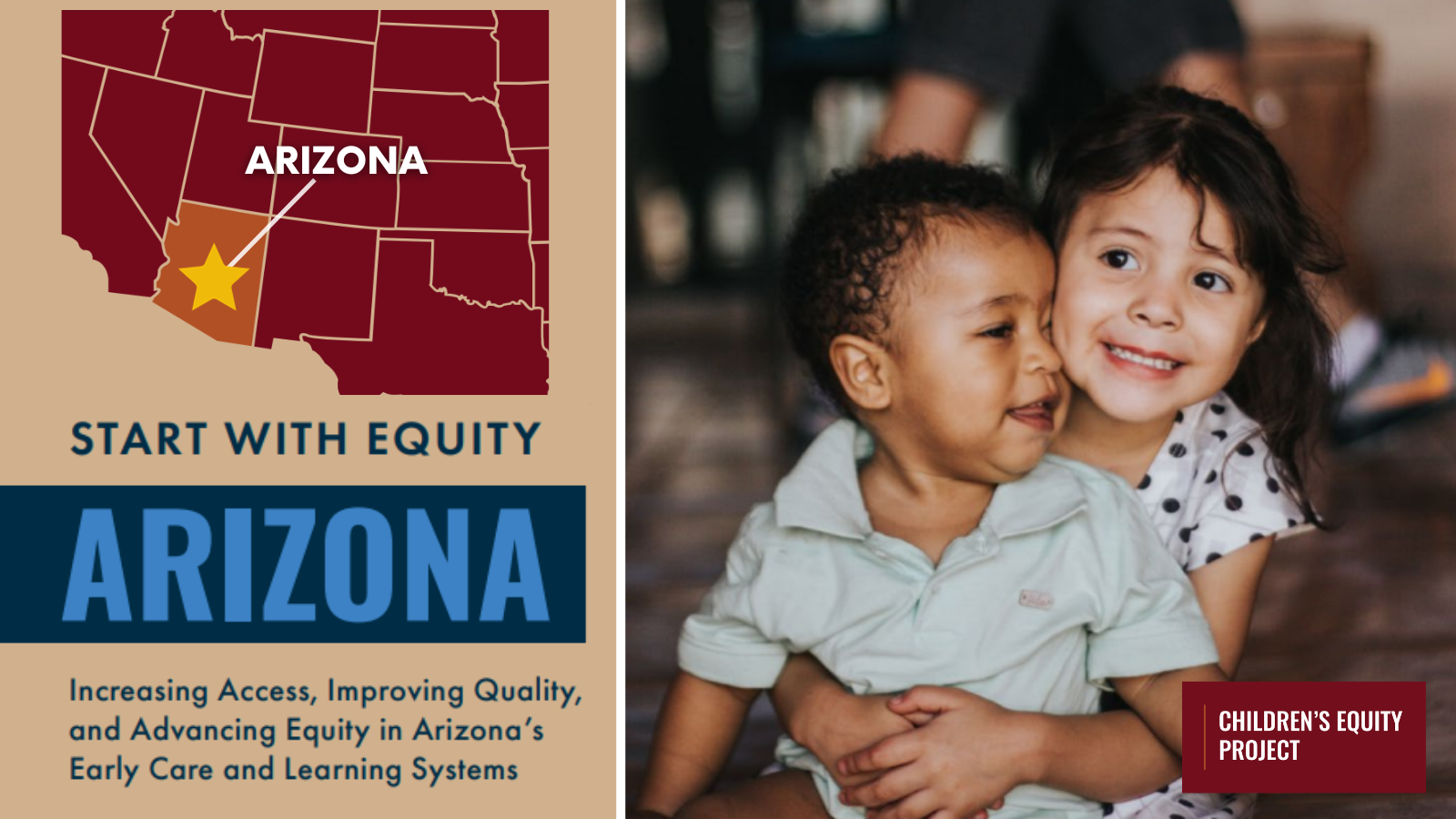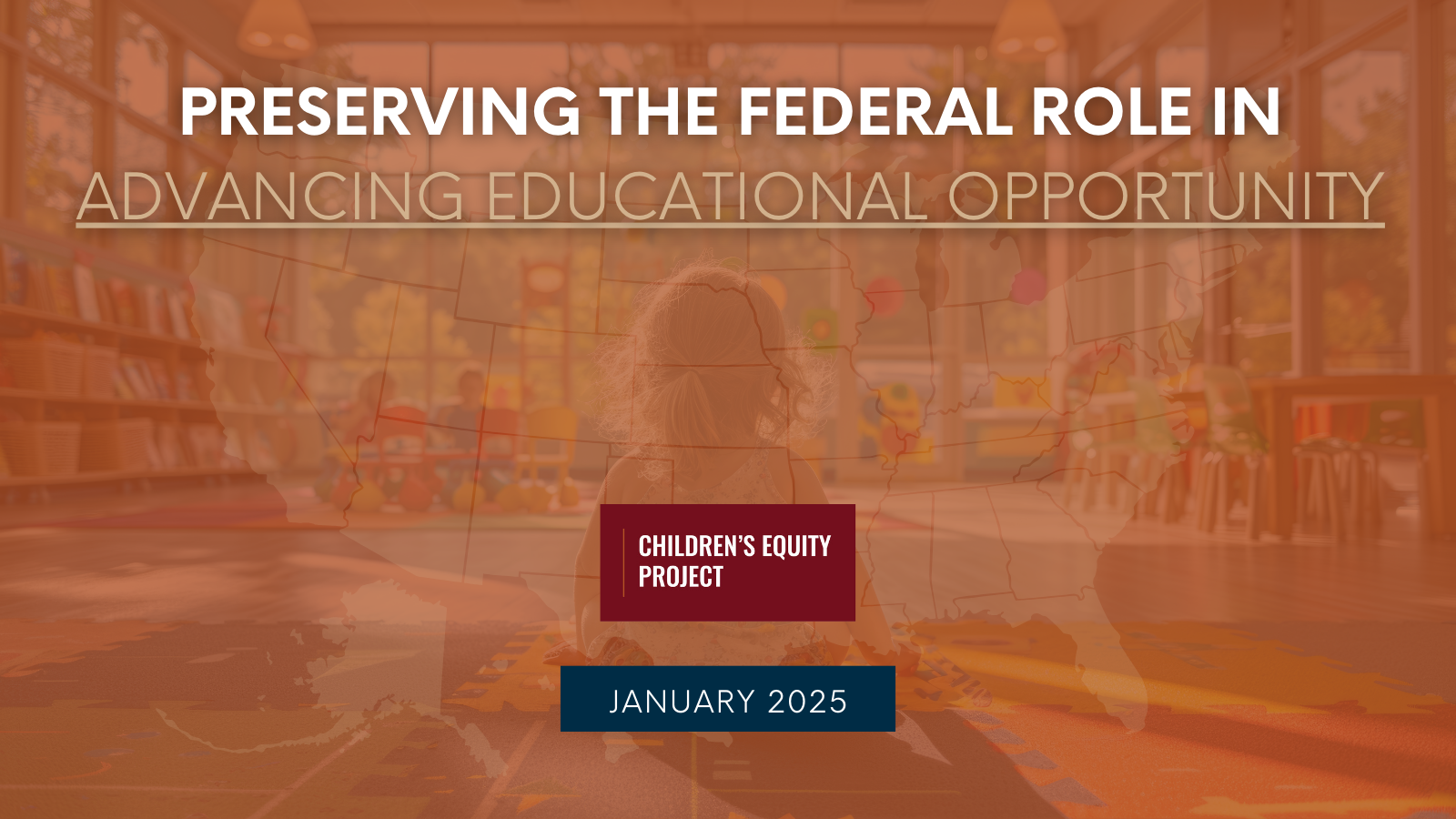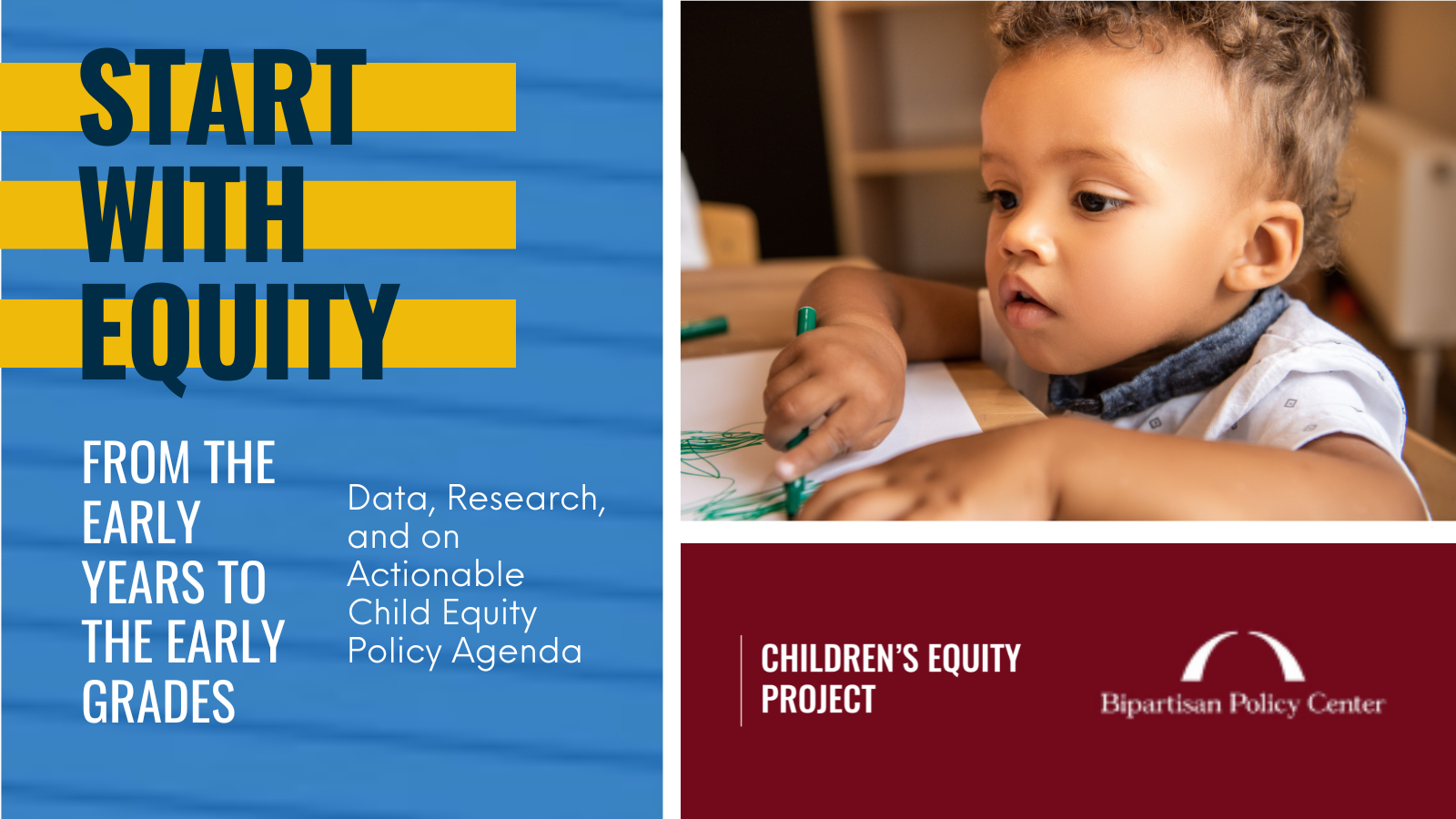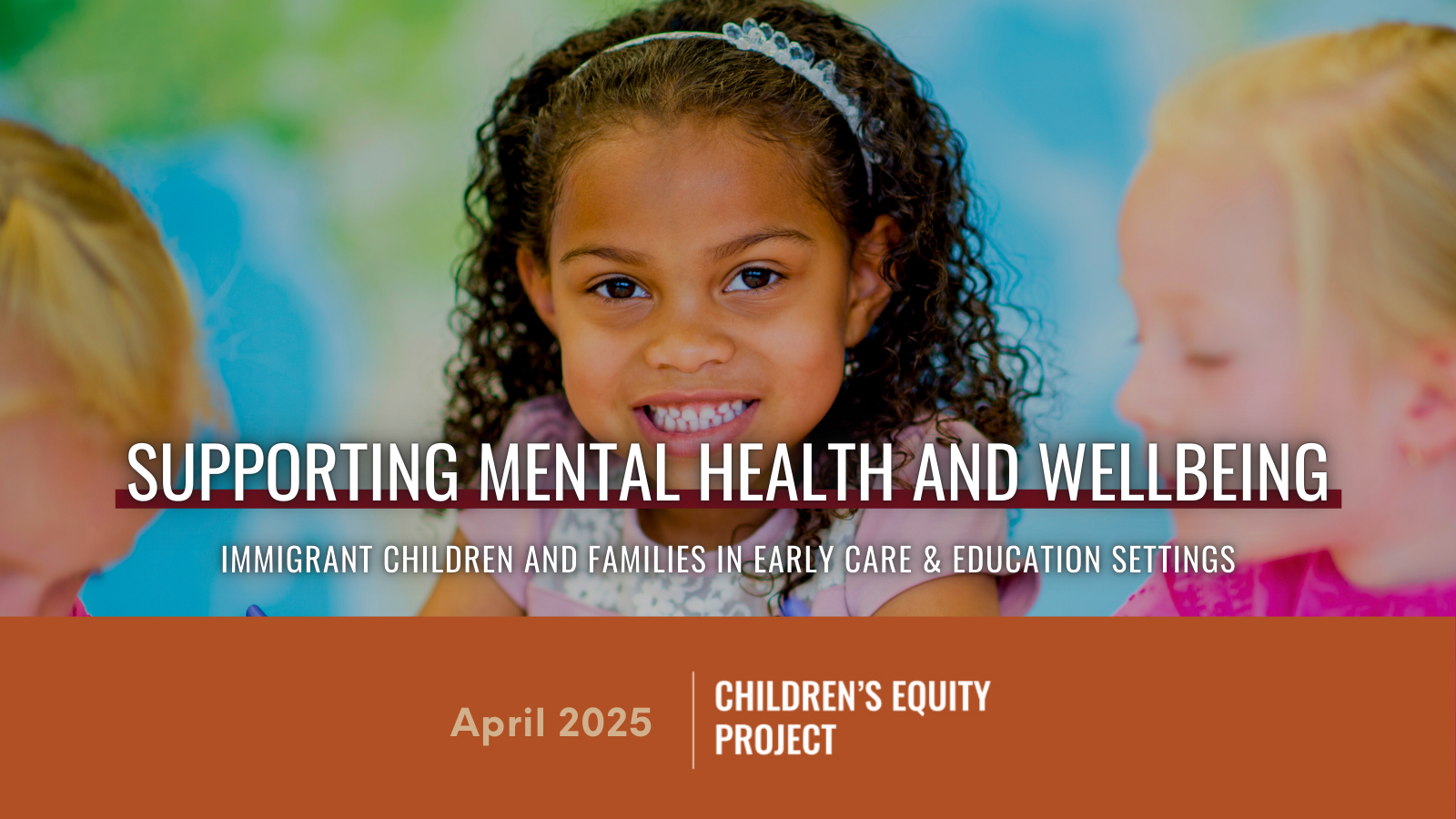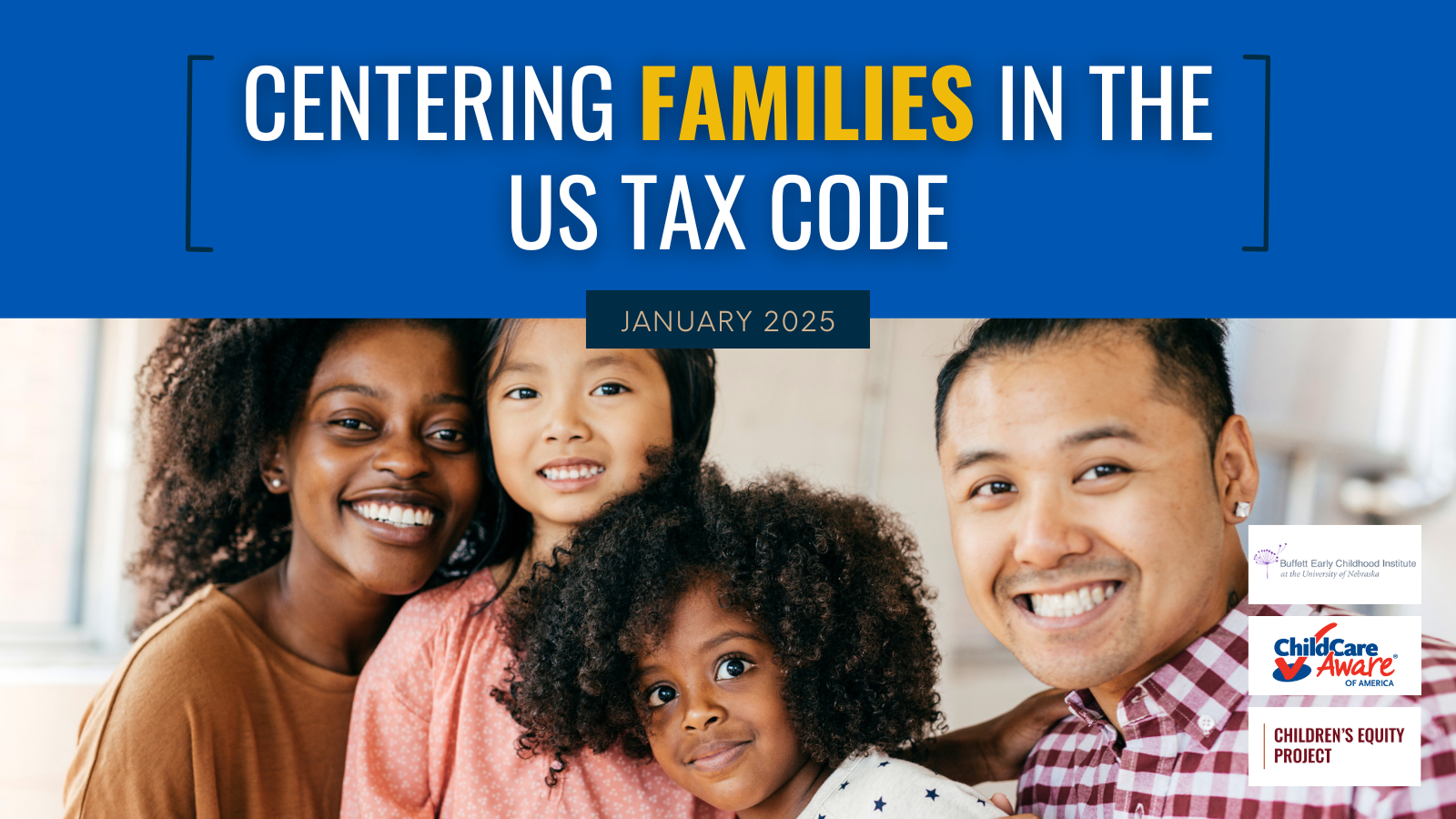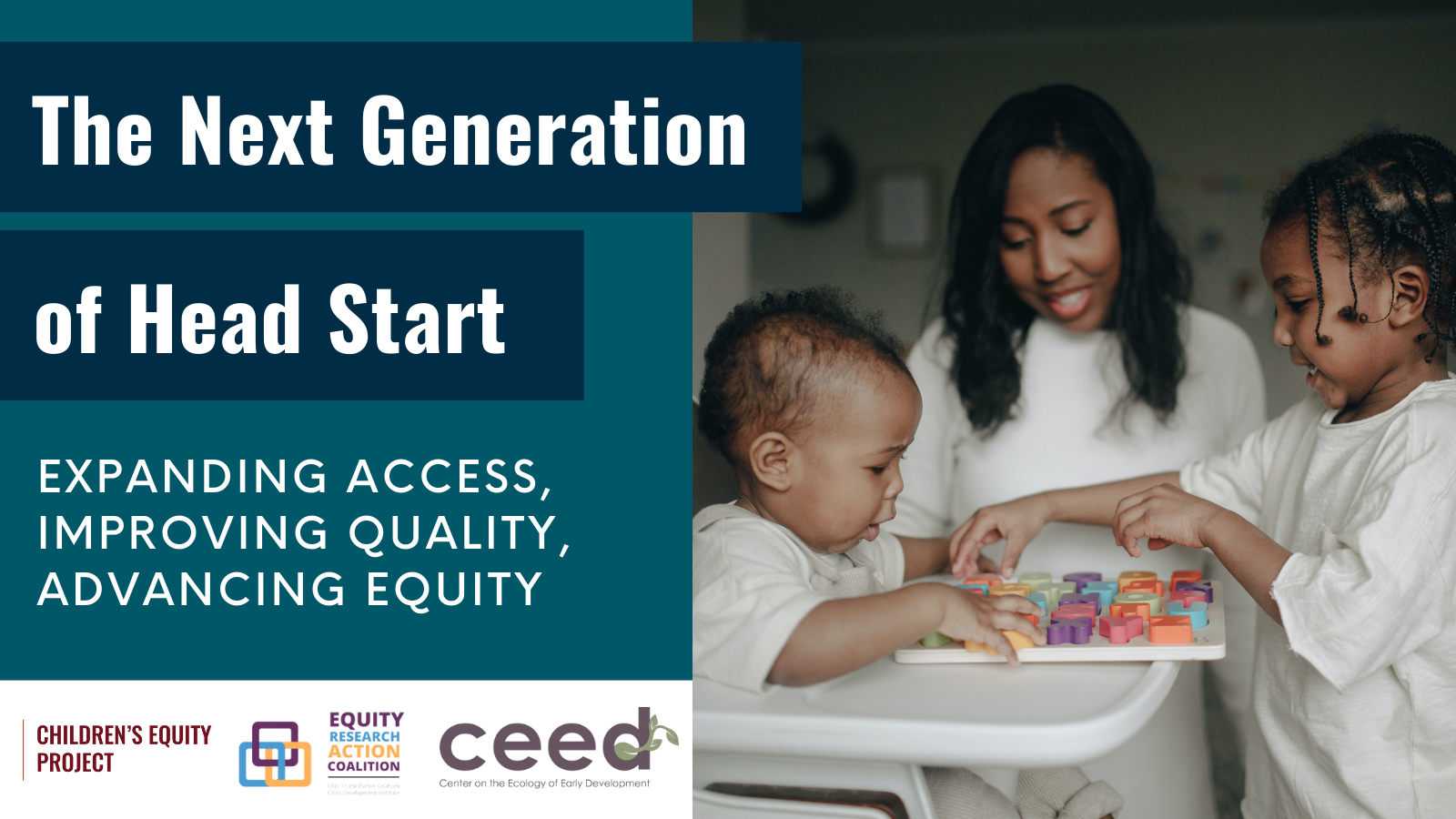Equity for Children in the United States: A Review
All children deserve access to the conditions and opportunities needed to thrive, including unbiased accessible healthcare and high-quality learning opportunities; safe, toxin-free communities and stable housing; access to nutritious meals; and secure, warm, available, and loving caregivers. Historic and contemporary injustices in US society have created inequities in opportunity and access to resources for Black, Latine, Asian, American Indian and Alaska Native, and other children of color, children with disabilities, children in poverty, and other marginalized children; these have contributed to stark disparities across child development outcomes. This Element overviews inequities in economic, educational, and health systems through historical and contemporary perspectives and describes how these inequities impact children and families. Solutions to address these inequities are considered for a fairer US society, starting with its youngest residents, where all families have what they need to thrive.
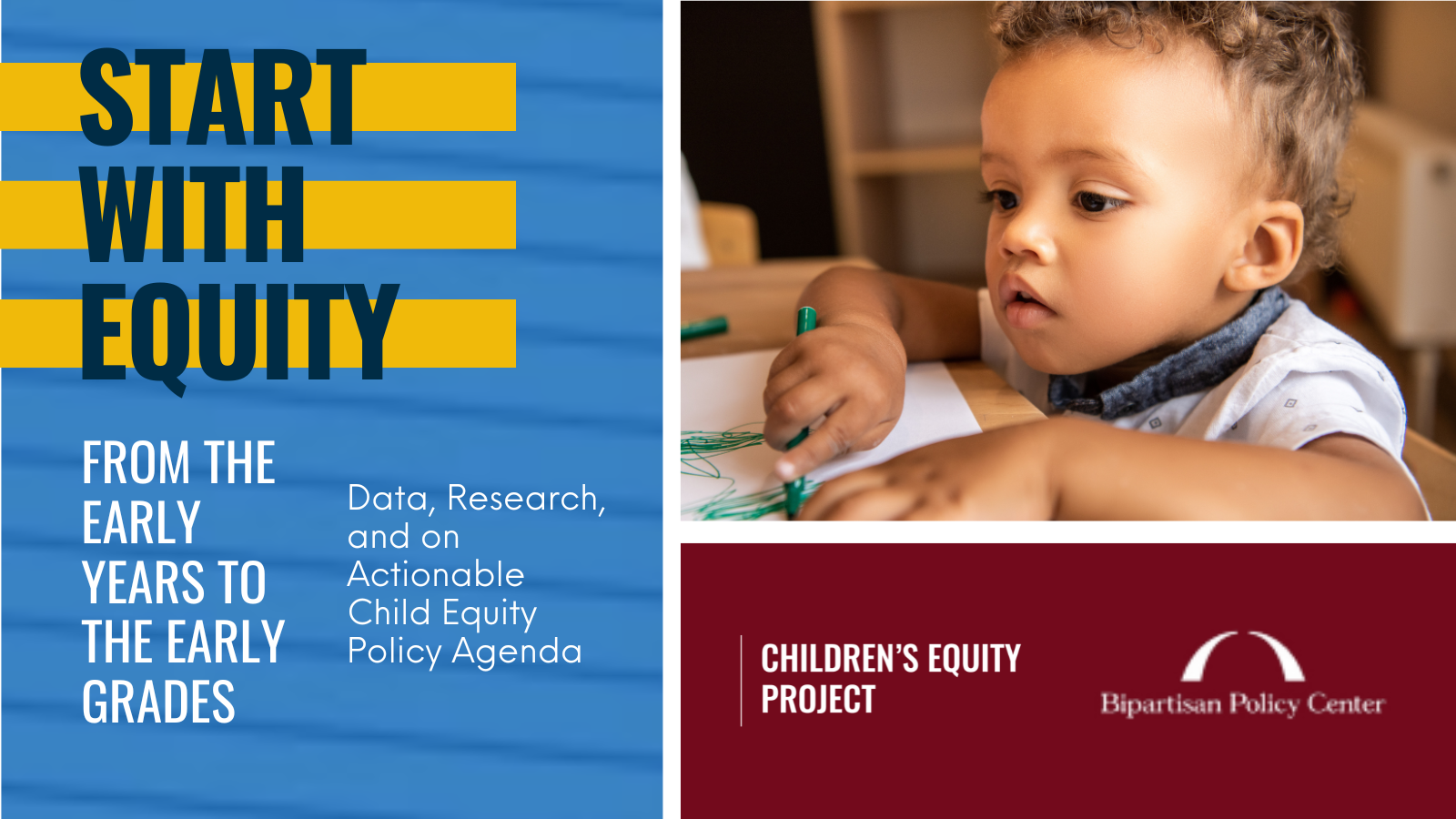
Start with Equity: From the Early Years to the Early Grades Data, Research, and an Actionable Child Equity Policy Agenda
The CEP has released a new landmark report that reviews the state of equity in America's learning systems, from the early years to the early grades. The report includes a comprehensive and concrete equity policy agenda aimed at making our learning systems more equitable.
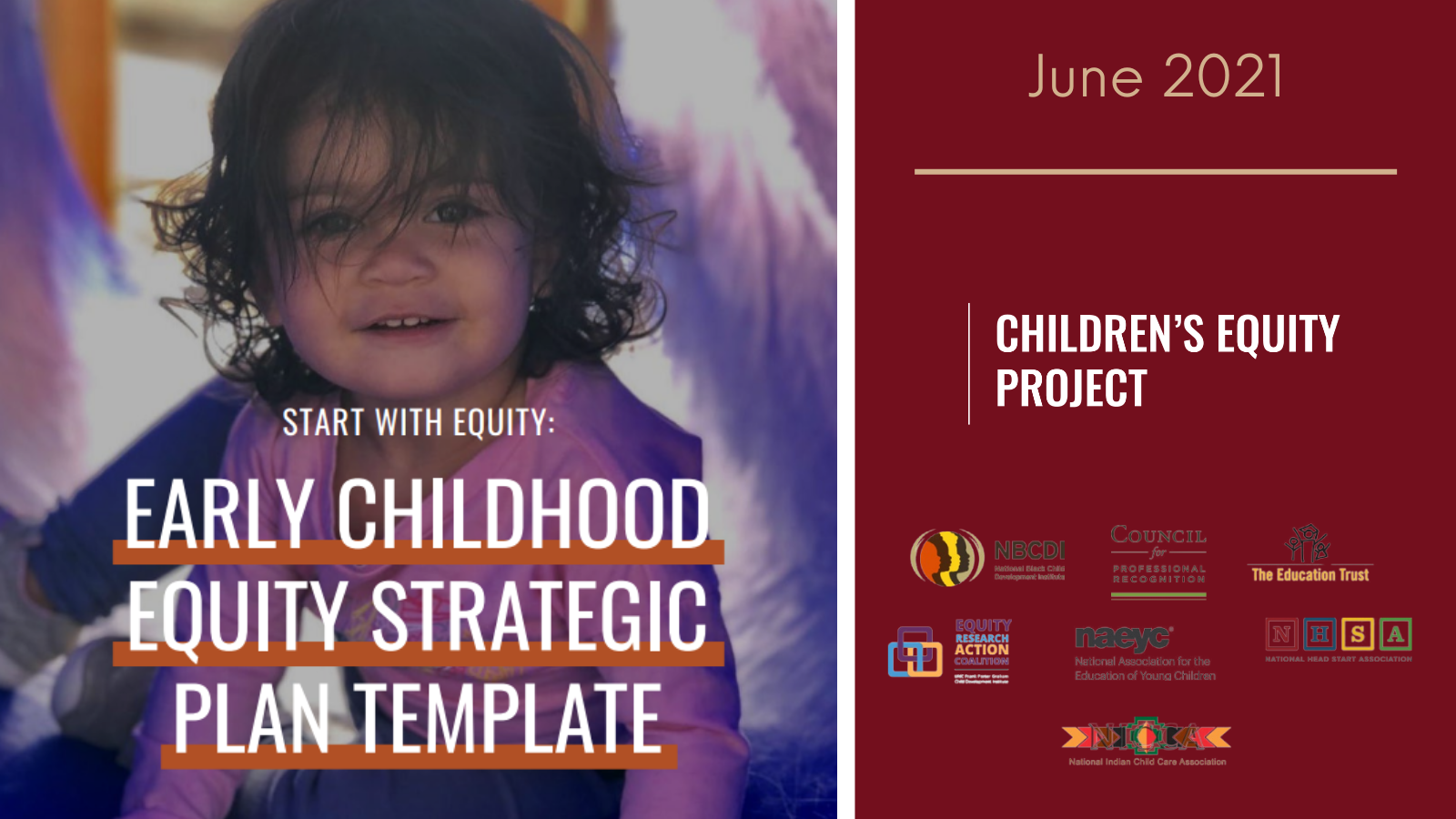
Equity Strategic Plan Template to Advance Equity in Early Care and Education Systems
The Early Childhood Equity Strategic Plan Template is an implementation tool that can assist states and tribes in planning for equity within their learning systems for the youngest children.

Start with Equity: California
This report specifically focuses on three key issues covered in the Start with Equity national report: harsh discipline and its disproportionate application, lack of inclusive learning opportunities for children with disabilities, and inequitable access to bilingual learning for dual language learners.

Equity is Quality and Quality is Equity: Operationalizing Equity in Quality Rating and Improvement Systems
This report addresses a fundamental content flaw in QRISs by operationalizing equity indicators. These indicators are grounded and organized by the CEP’s 14 priorities to advance equity in early care and education systems, published in a 2020 report, in partnership with 8 national organizations. States can use these indicators to inform QRIS redesign efforts to advance equity and improve transparency for families.

Start with Equity - Arizona
In this report, the CEP deeply examines Arizona’s early learning systems, with an emphasis on how those systems have attended to—or failed to attend to—the needs of Arizona’s children, particularly those from historically and contemporarily marginalized communities.

Start with Equity: 14 Priorities to Dismantle Systemic Racism in Early Care and Education
The CEP published a follow-up new report outlining 14 critical priorities and actionable policies that federal and state policymakers can immediately and concretely advance equity in the early childhood system for our most vulnerable children. The report aims to create better, more just systems and to dismantle long-standing racist policies and practices.
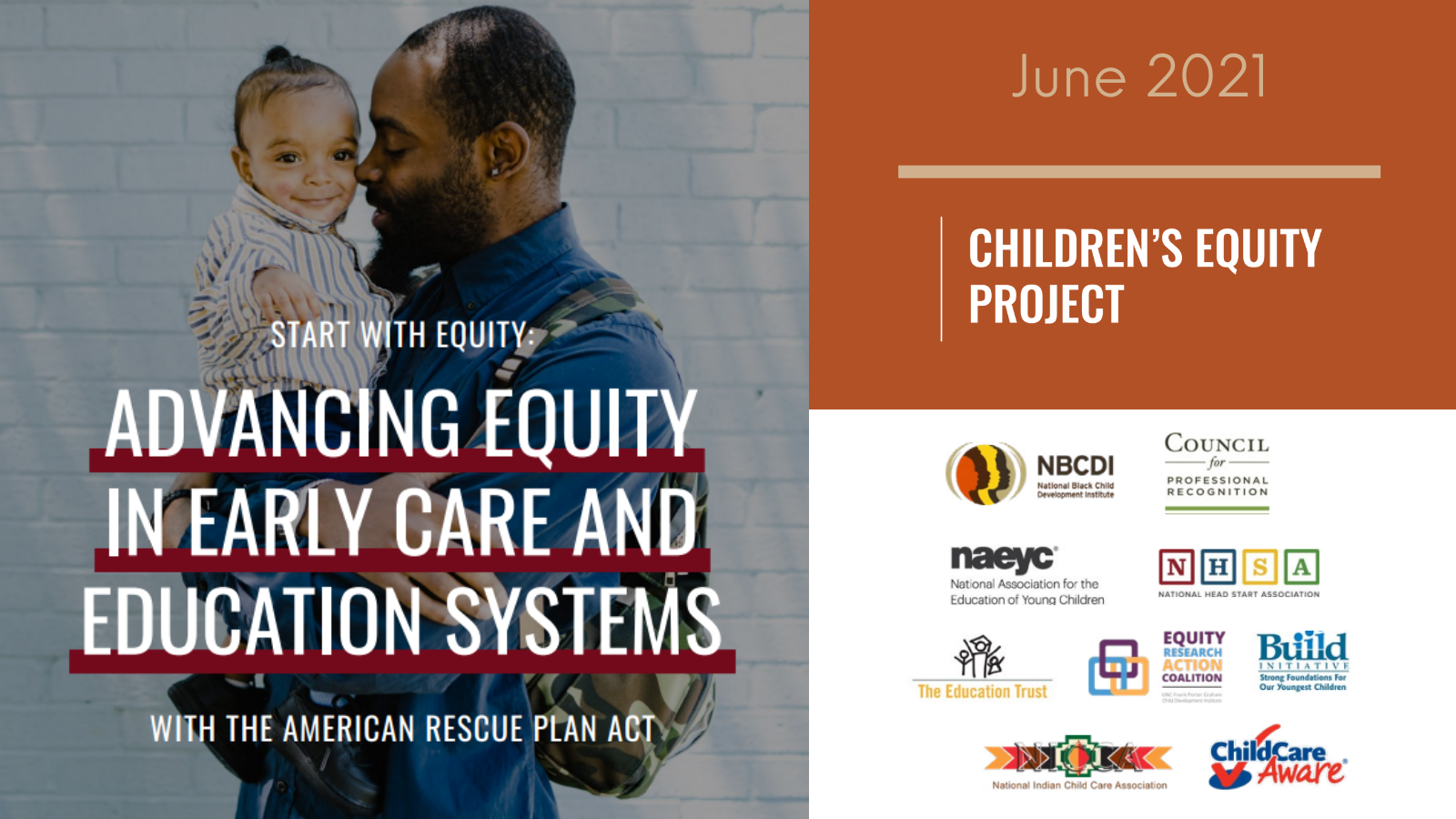
Advancing Equity Through the American Rescue Plan Act
This new brief reviews concrete strategies to invest in building equitable systems using the unprecedented infusion of resources provided by the American Rescue Plan Act.
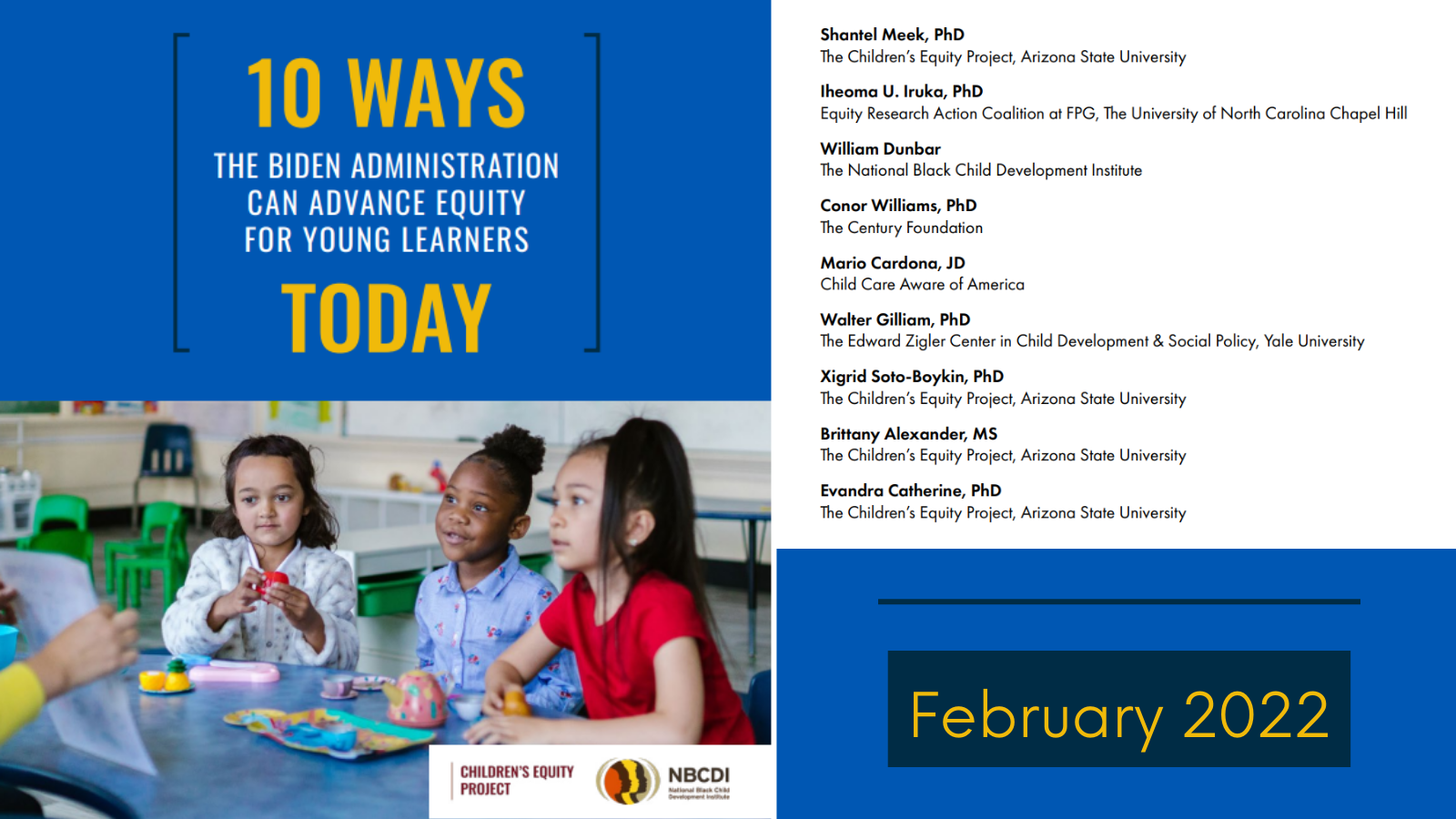
10 Ways the Biden Administration Can Advance Equity for Young Learners Today
Building on our two previously published Start with Equity agendas, Start With Equity, from the Early Yearsto the Early Grades: Data, Research, and an ActionableChild Equity Policy Agenda and Start With Equity: 14 Priorities to Dismantle Systemic Racism in Early Care andEducation, this brief outlines key “now actions.”

Centering Families in the U.S. Tax Code
This brief reviews existing levers in the tax code and provides a set of recommendations to craft a family first tax policy.

Reimagining State Child Care Licensing: Improving the Foundation for Quality and Equity in Early Care and Education Environments
This report from the Children’s Equity Project provides states with recommendations to enhance their child care licensing systems, aligning them with recent research and effective practice, across 1) licensing content, 2) licensing process, and 3) governance and coordination in state early childhood systems. With updates and key modifications, states can improve experiences and outcomes and advance equity by reimagining their child care licensing regulations and systems to serve as the bedrock on which to build quality early care and learning.

An Evaluation of Arizona’s Federal Pandemic Recovery Investments in Child Care: Landscape, Findings, and Implications for the Early Care and Learning System
In this report, we share the findings of an evaluation of COVID-19 pandemic-era federal relief dollars and their use in the child care system in Arizona.

State CCDF Plans: Levers to Expand Access, Enhance Quality, and Advance Equity
In this brief, we provide nine overarching recommendations for CCDF Lead Agencies to leverage the CCDF 2025-2027 Plan to address dimensions of access, quality, and equity and to better reach eligible children and families in low-income households through subsidies, especially those who have been historically and contemporarily marginalized, including Black, Indigenous, Latine, Asian, and other children of color; children with disabilities; emerging bilingual children; and children from under-resourced communities.
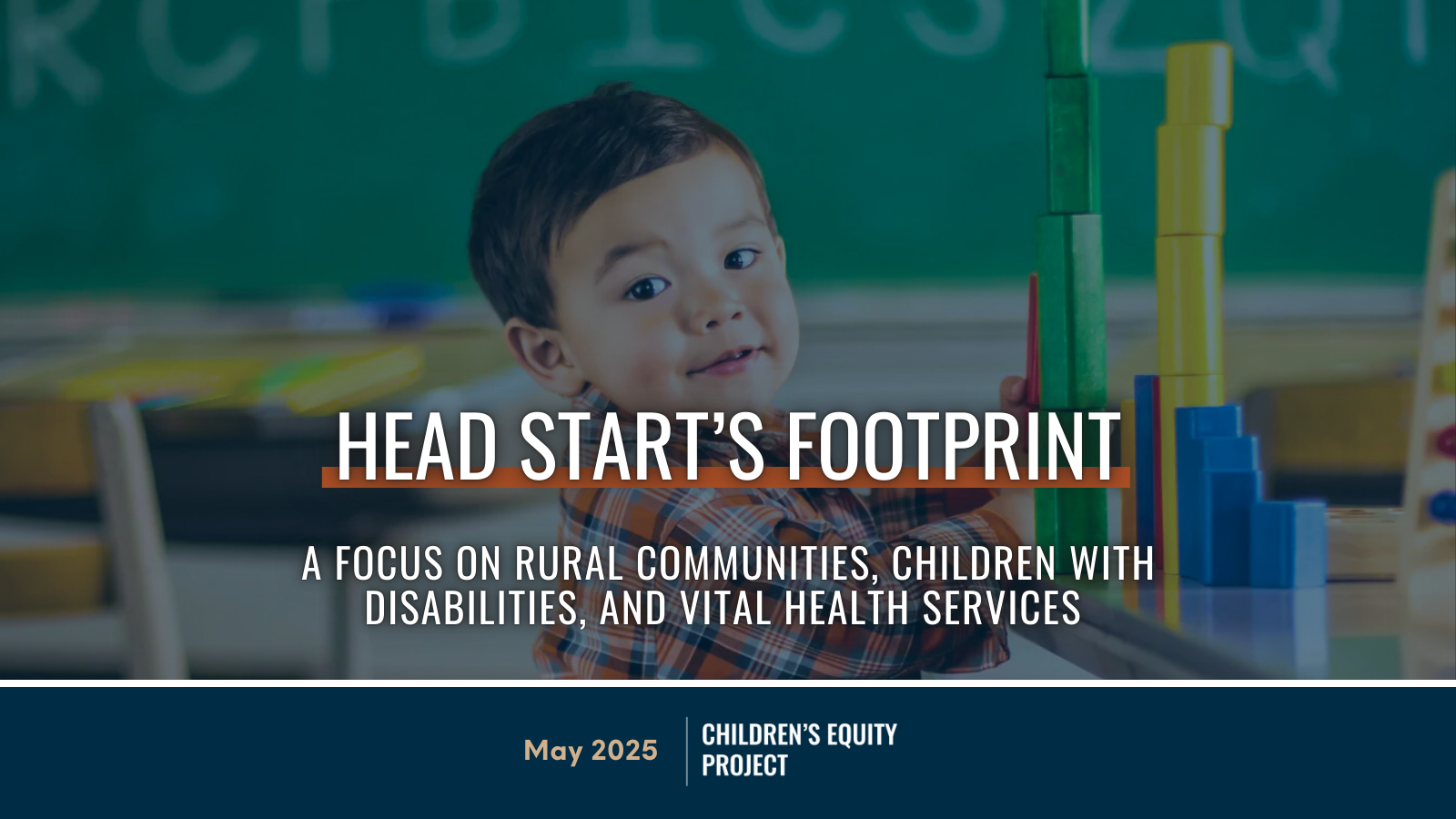
Head Start’s Footprint: A Focus on Rural Communities, Children with Disabilities and Vital Health Services
This report will explore in greater detail Head Start’s footprint in the U.S., with a focus on:
1️⃣ The role Head Start plays in rural communities.
2️⃣ The benefits of Head Start in the lives of children with disabilities.
3️⃣ The support Head Start provides to children and families.
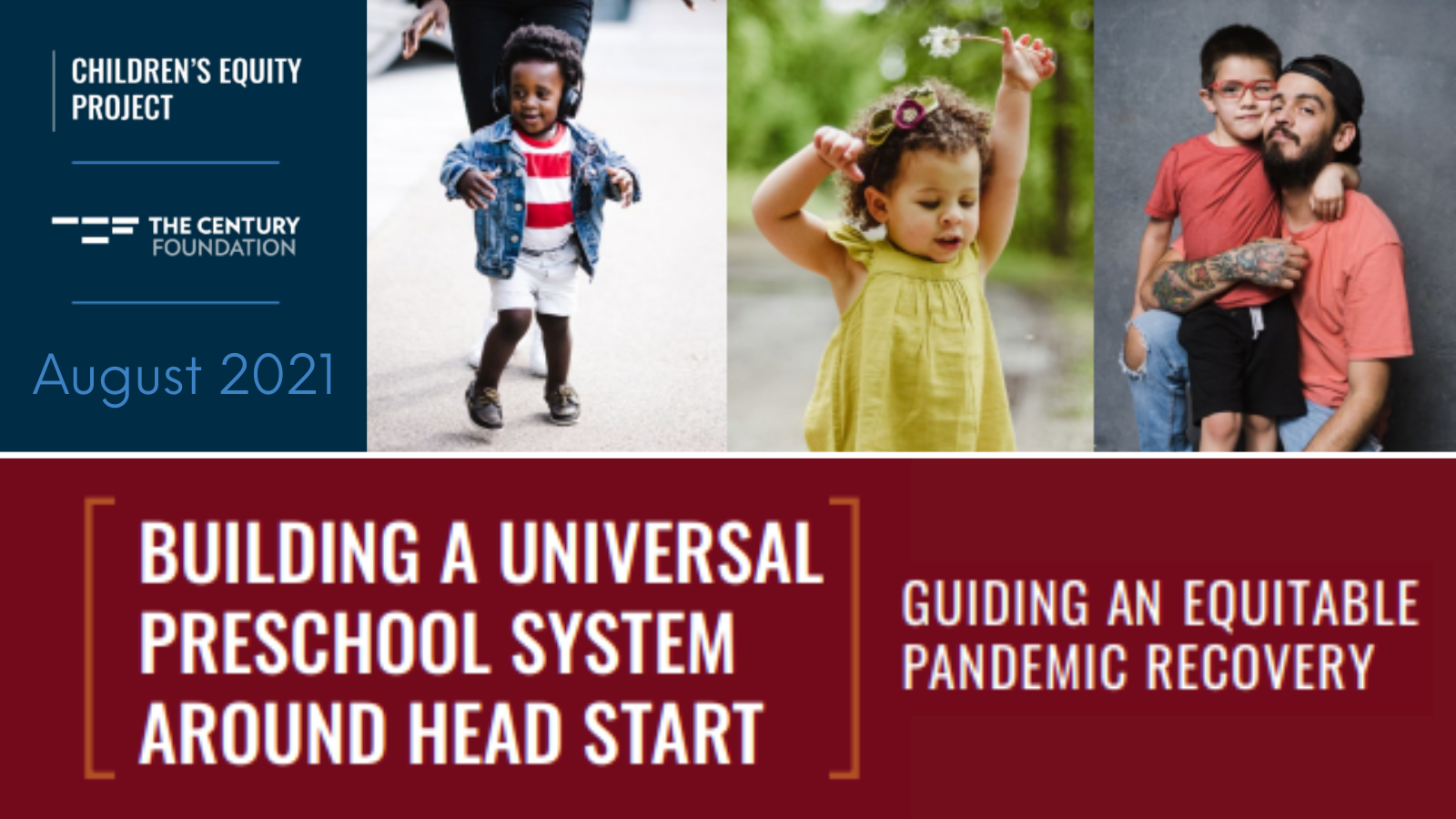
Building a Universal Preschool System Around Head Start
The Building a Universal Preschool System Around Head Start brief unpacks the argument for making Head Start the anchor of a new universal system to ensure an equitable, mixed delivery, high-quality, and comprehensive system that optimizes existing funding streams and coordinates new ones to meet this unique moment in history.
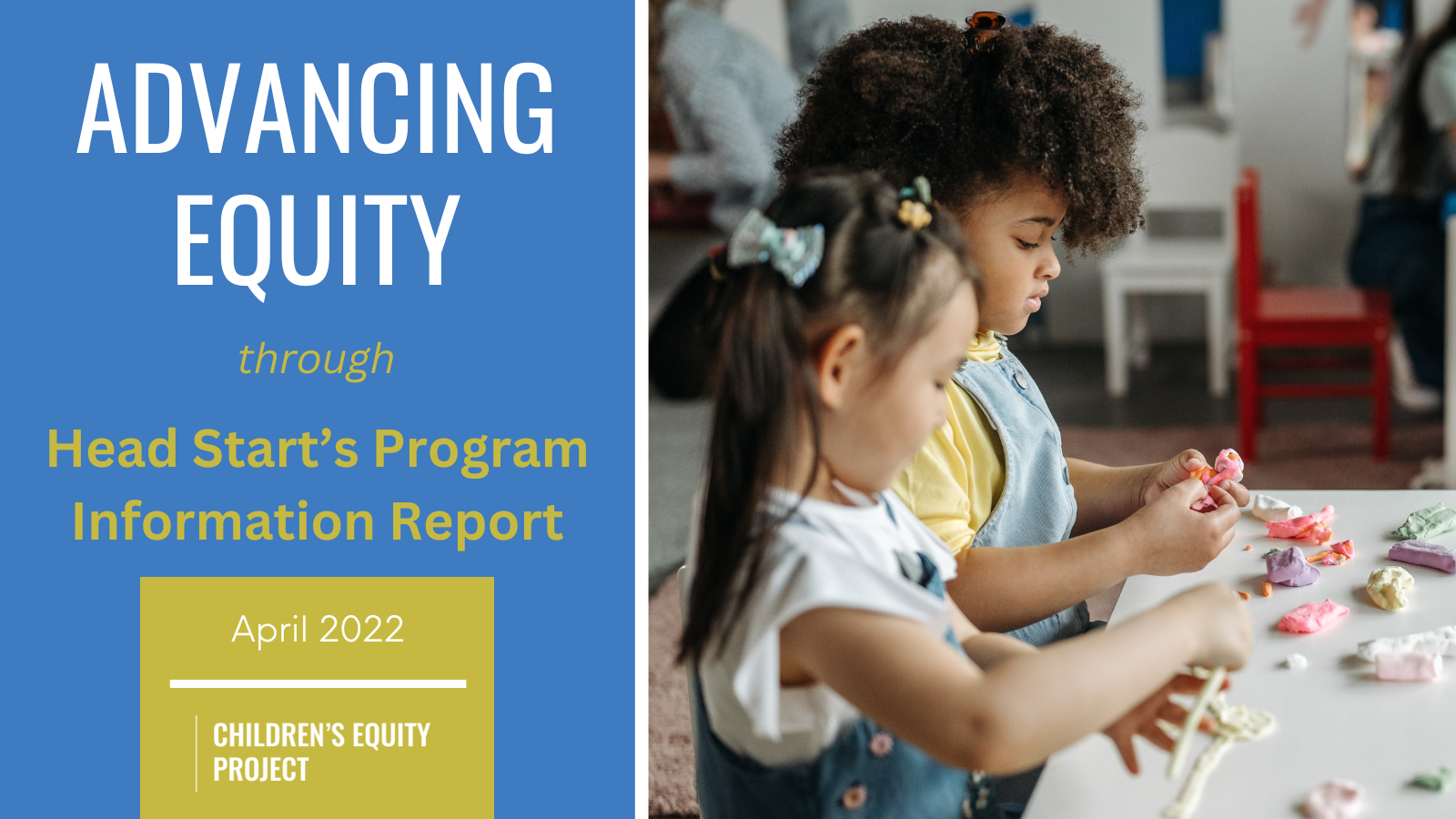
Advancing Equity through Head Start’s Program Information Report
Head Start has a long-standing commitment to serving children from under-resourced communities, and since its inception, has served over one million children and their families through early education and related services.This brief provides actionable recommendations to embed equity in the Head Start PIR to enable a greater understanding of equitable and positive experiences for children served.
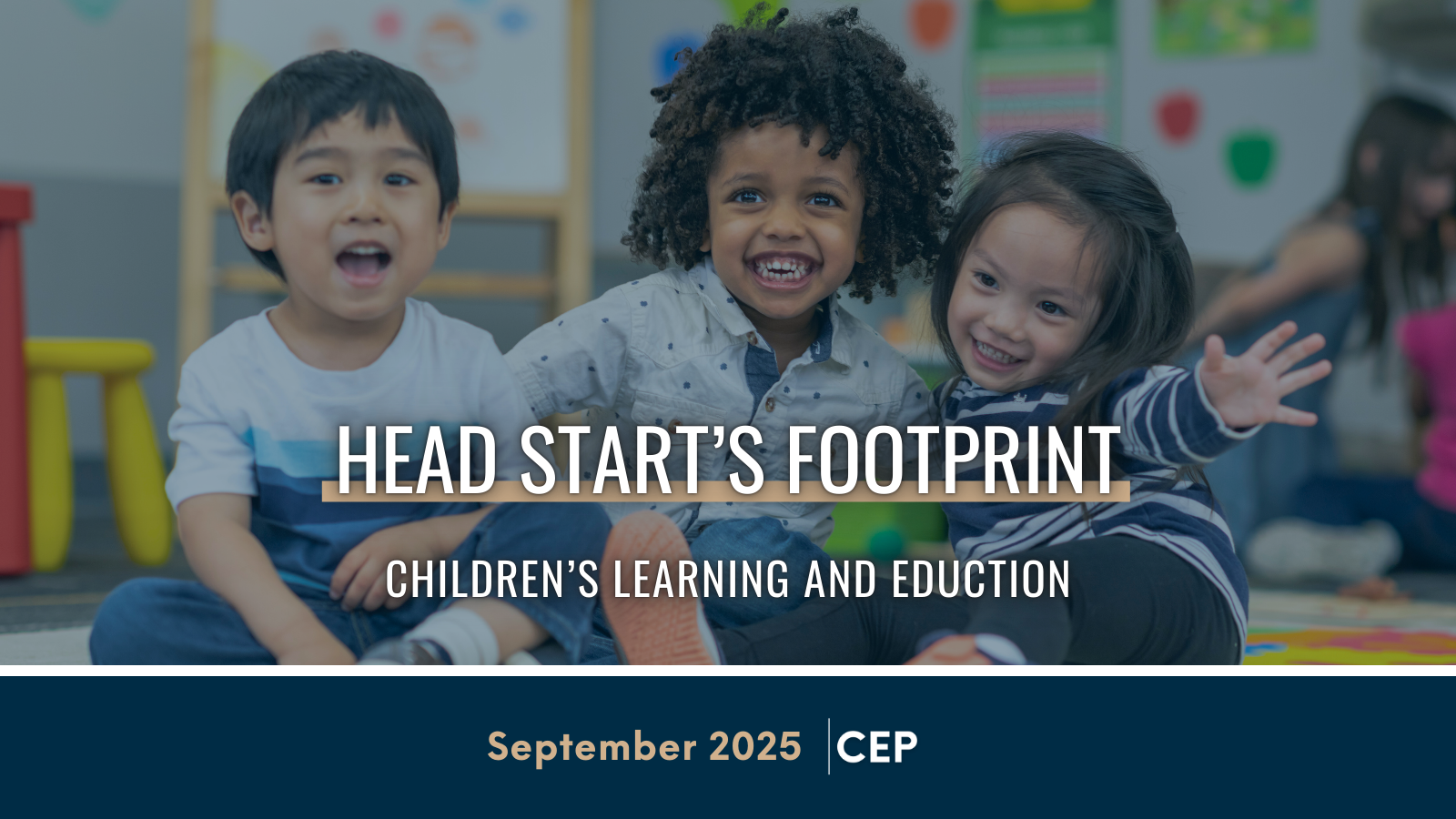
Head Start’s Footprint: Children's Learning and Education
This report explores Head Start’s educational reach and impact. We also explore research on the impact of administrative burden, particularly on families experiencing homelessness, families of children with disabilities, and children involved in the child welfare system, among others.
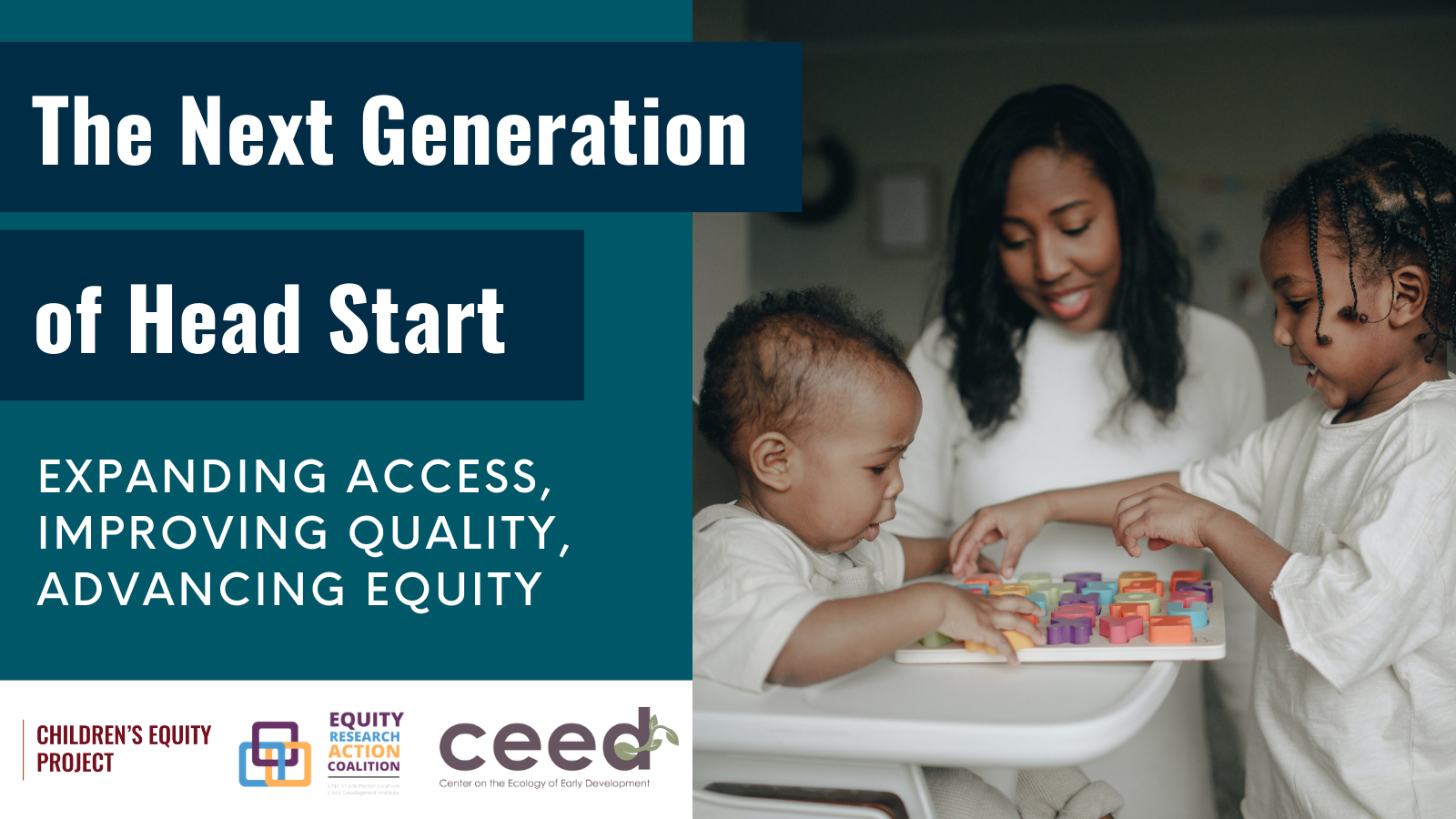
The Next Generation of Head Start: Expanding Access, Improving Quality, Advancing Equity
The CEP published a new brief partnered with the Equity Research Action Coalition and the Center on the Ecology of Early Development. This brief explores 10 changes to the Head Start Act that can boost the Head Start model for the next generation of children and families.

Building Supply, Enhancing Quality, and Advancing Equity: The Early Head Start-Child Care Partnership Series
The CEP published a new set of briefs in partnership with the Bipartisan Policy Center and Start Early. The series highlights the promising work of the EHS-CCPs to date, particularly related to pandemic recovery and stabilization, and highlights the many roles that states can play in establishing and expanding their own EHS-CCPs, including by using Preschool Development Grant Birth to Five funding and aligning CCDF quality funding with supports needed to implement the Early Head Start model.

Preserving the Federal Role in Advancing Educational Opportunity
This report outlines key programs that play a vital role in communities and families to nurture healthy child development and promote quality education and learning. We highlight research that demonstrates programs’ constructive impacts and the consequences of reducing or eliminating funding, transparency, and oversight.

Safeguarding the Civil Rights of Children & Families
States have many policy levers to build civil rights infrastructure to codify children’s civil and human rights. This begins with adding explicit protections to state constitutions and statutes, but can continue through legislation appropriating funding to defend civil rights and vigorous civil rights oversight and enforcement by state-level offices (such as attorneys general or other state executive-level civil rights offices). This report reviews these and other state and local levers to protect the civil rights of children.

A Holistic Approach to Ending Exclusionary Discipline for Young Learners
In this new report, the Children's Equity Project's reviews the state of the data, explores root causes, and presents a multidimensional, holistic framework that policymakers can use to make meaningful progress in reducing the rate, and importantly, eliminating disparities in exclusionary discipline.

Harsh Discipline and its Disproportionate Application
This policy brief reviews the data, research, and policy landscapes of harsh discipline including suspension, expulsion, corporal punishment, seclusion, and the inappropriate use of restraint. It provides a robust policy agenda to reduce its use.

The Preschool (and Beyond) Exclusionary Discipline Study (PEDS) - Report 1
In this report, e analyzed data related to the use of OSS in U.S. public elementary schools and found that use of OSS in early grades of schooling was a little over 26 cases per 1,000 students enrolled, a total of more than 672,000 cases nationwide in 2017-2018.

The Preschool (and Beyond) Exclusionary Discipline Study (PEDS) - Report 2
Out-of-school suspension (OSS) is a severe yet fairly common form of student discipline that prohibits students from being at school or participating in school-related activities for a specified number of days. In this report, we dive deep into the effects OSS has on our young learners.
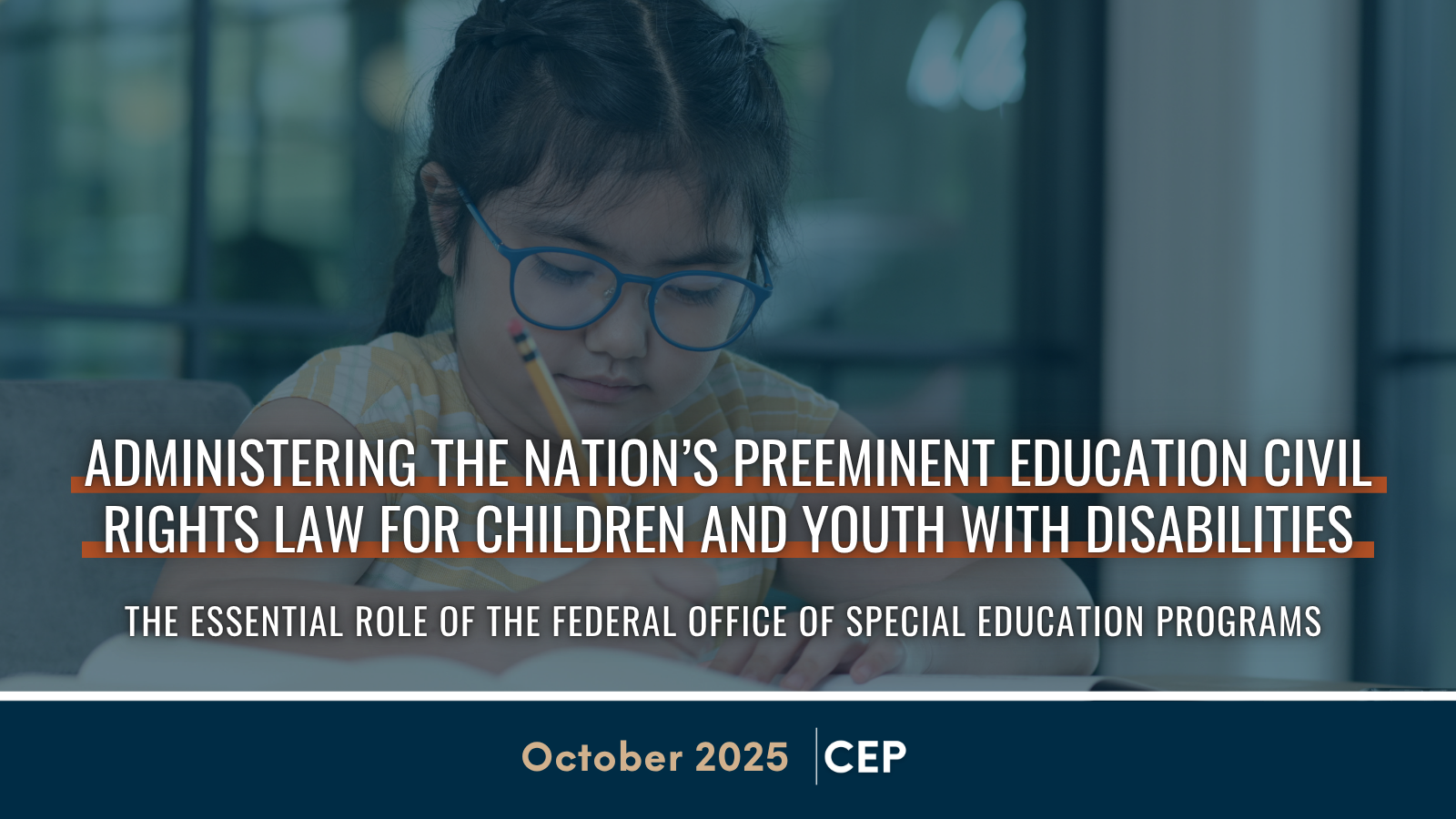
Administering the Nation’s Preeminent Education Civil Rights Law for Infants, Toddlers, Children, and Youth with Disabilities: The Essential Role of the Federal Office of Special Education Programs
This report focuses on the critical role of the federal government in administering the Individuals with Disabilities Education Act (IDEA). IDEA, the preeminent education civil rights law for infants, toddlers, children and youth with disabilities, served over 8 million children and youth in 2024.

Learning, Joy, and Equity: A New Framework for Elementary Education
This report proposes a new framework for elementary education that builds on, and is informed by, previous foundational efforts, centered on children and the ways we know children learn, and disrupting well-documented, historically rooted, and contemporarily entrenched biases in learning systems. While there is no single ideal elementary school experience, there are core ingredients to which every child needs and deserves access. Guided by research, data, learnings from schools across the United States, parent and family voice, and a desire to design child-centered, joyful, and effective spaces for learning, we provide a framework that consists of 14 core ingredients.

Inclusive Learning for Children with Disabilities
This policy brief reviews the data, research, and policy landscapes of the inclusion of children with disabilities in general learning settings, and provides a robust policy agenda to expand access to such opportunities.
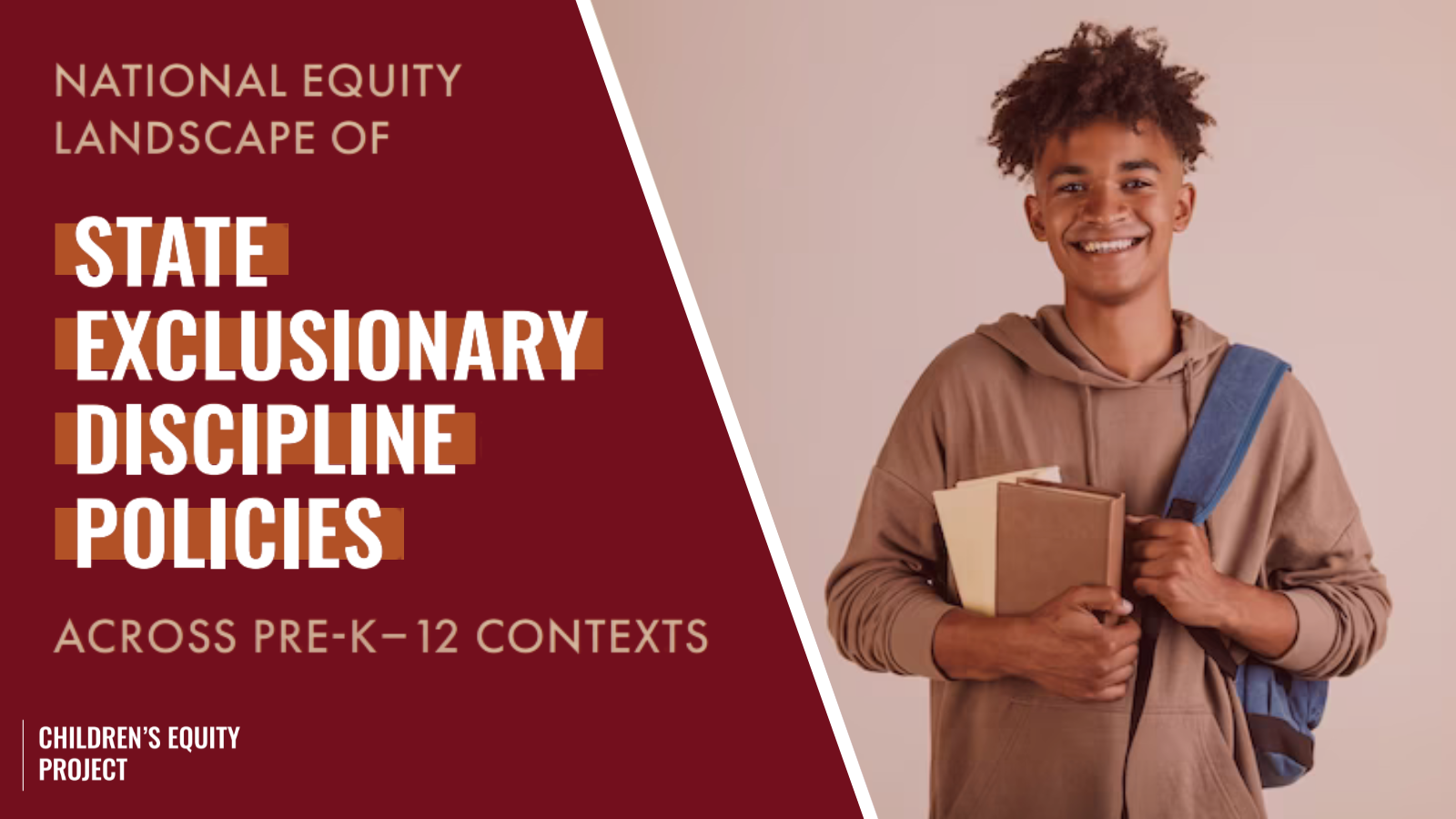
National Equity Landscape of State Exclusionary Discipline Policies Across Pre-K–12 Contexts
The CEP's new report provides an in depth look at state discipline policies in Pre-K-12th grade systems. We identify patterns and trends over time across 4 key categories 1) Student behavior incidents, 2) Grade limits on exclusion, 3) Limits on the length of exclusion, 4) Alternatives to harsh discipline. We also take a look at the last 5 years of policy trends between 2018 and 2023.
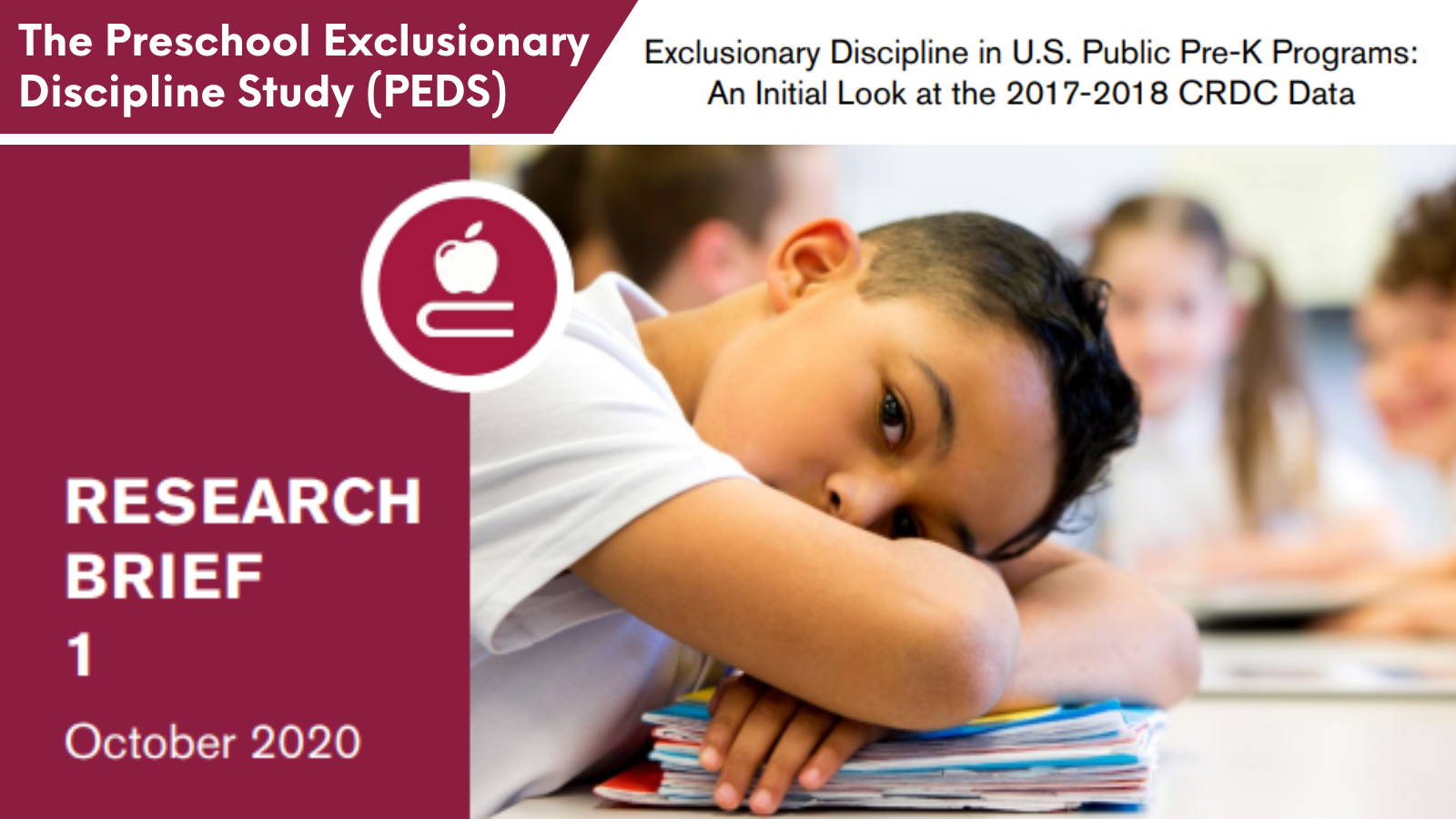
Harsh Discipline and its Disproportionate Application in the Early Years and Early Grades
In this report, we analyze discipline data and policy implications nationally, as well as at the state and local levels. We specifically focus on identifying and closing disparities that Black children, other children of color, and children with disabilities face within learning systems across an array of harsh discipline types, including suspension, expulsion, corporal punishment, seclusion, and restraint.
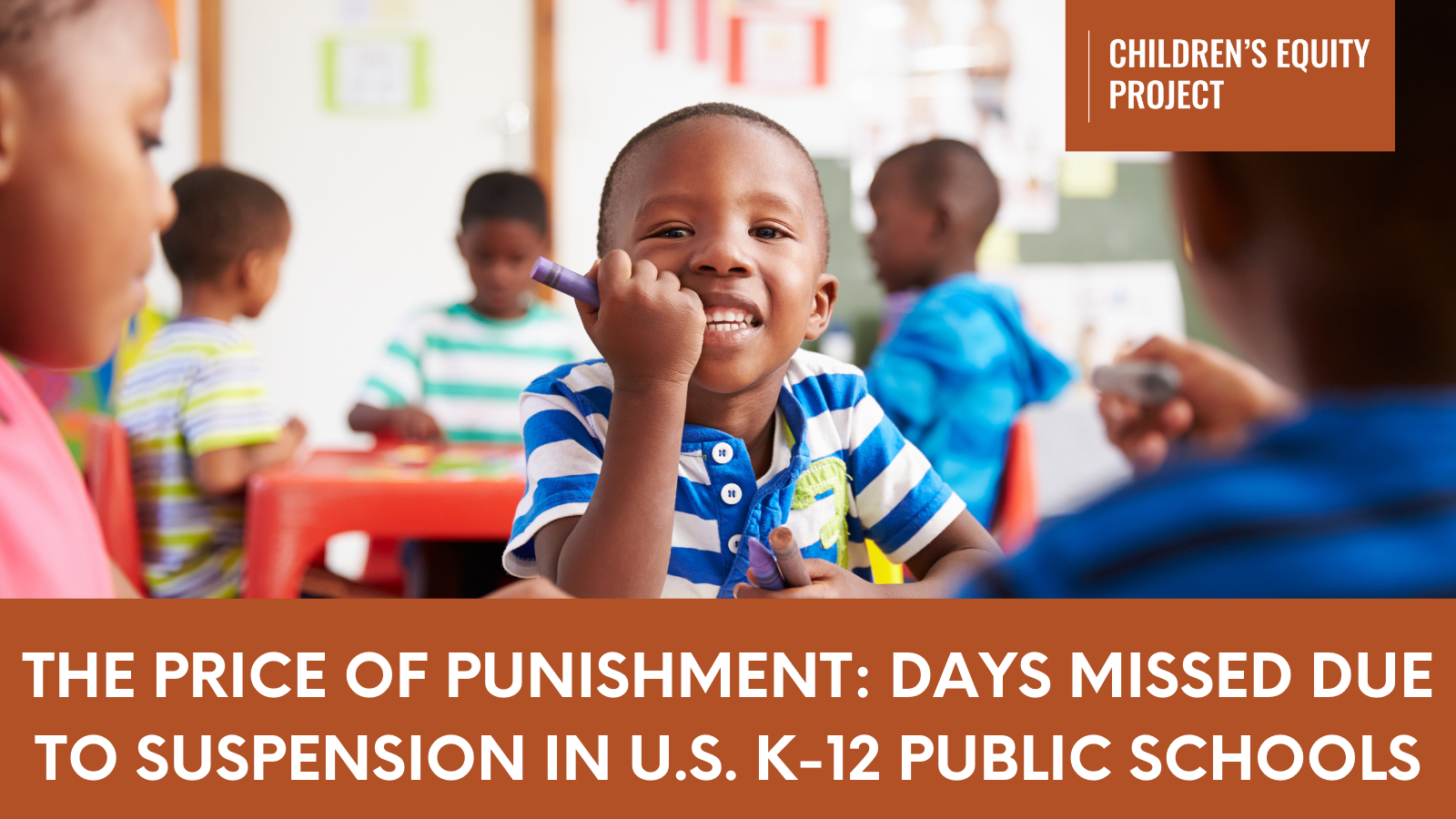
The Price of Punishment: Days Missed Due to Suspension in U.S. K-12 Public Schools
In this report, we analyze the 2017–2018 national sample, about 11 million days of school were missed due to suspension. Rates of DMS varied across regions of the U.S., from state to state and from school to school (higher in non-elementary and non-charter public schools).
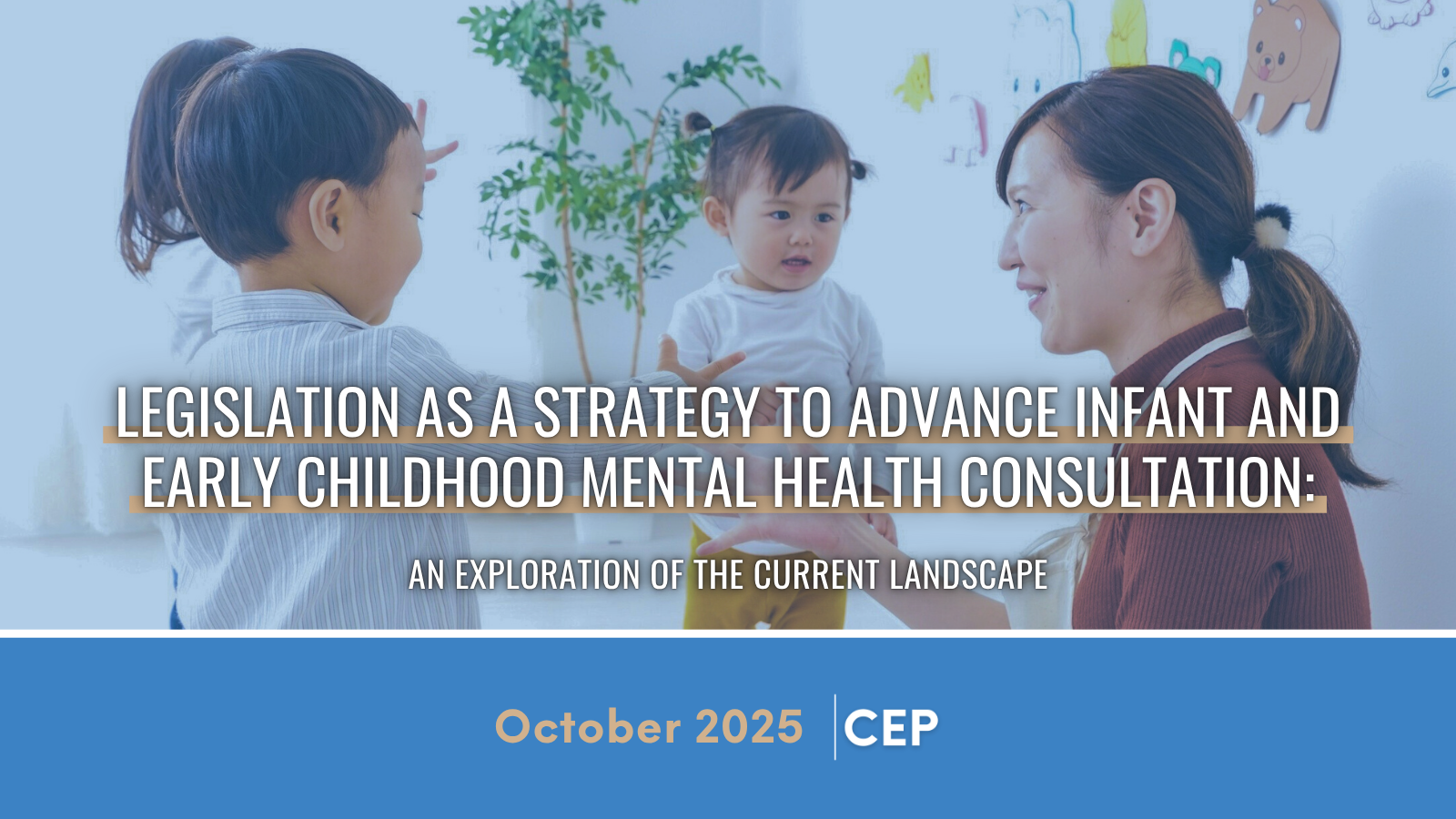
Legislation as a Strategy to Advance Infant and Early Childhood Mental Health Consultation: An Exploration of the Current Landscape
This brief provides an overview of the IECMHC legislation landscape, including examples of the types of bills that states have passed, and common themes and trends. The brief includes selected state profiles and detailed summaries of all bills.
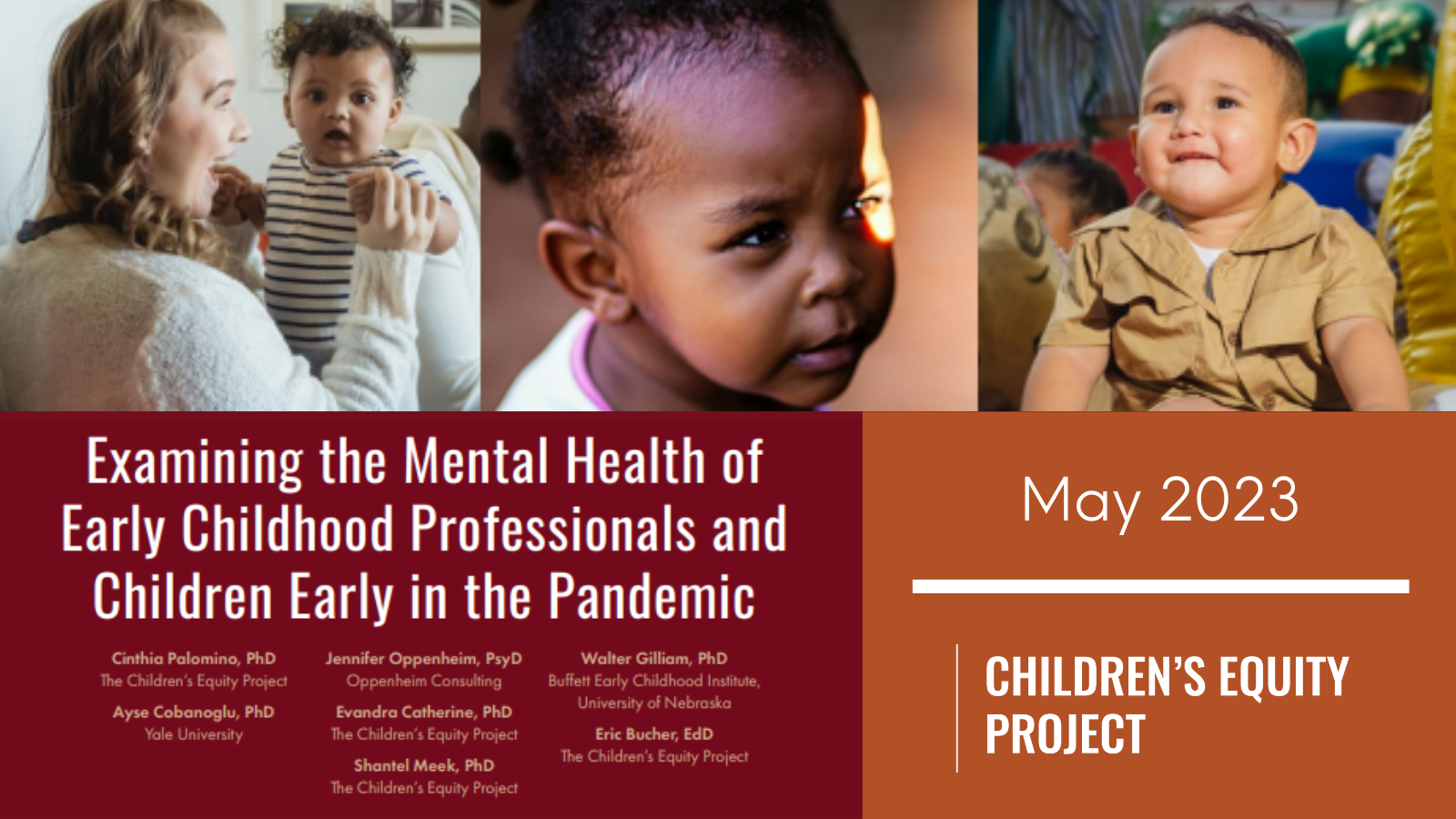
Examining the Mental Health of Early Childhood Professionals and Children Early in the Pandemic
In a new report, the Children's Equity Project, in partnership with the Buffett Early Childhood Institute at the University of Nebraska and Yale University, highlights the mental health of the early care and education workforce and the children they care for using data collected over the course of the pandemic in 2020 and 2021.
Equity Toolkit for Infant and Early Childhood Mental Health Consultation
In partnership with the Center of Excellence for Infant & Early Childhood Mental Health Consultation, the CEP created am equity toolkit for Infant and Early Childhood Mental Health Consultation.

Using ARPA to Grow Infant and Early Childhood Mental Health Consultation Systems
The purpose of this brief is to offer state, territorial, and tribal decision-makers concrete and actionable recommendations for using ARPA funds to build IECMHC systems that increase access to high-quality IECMHC, especially for populations that have experienced disproportionate impacts from the pandemic.
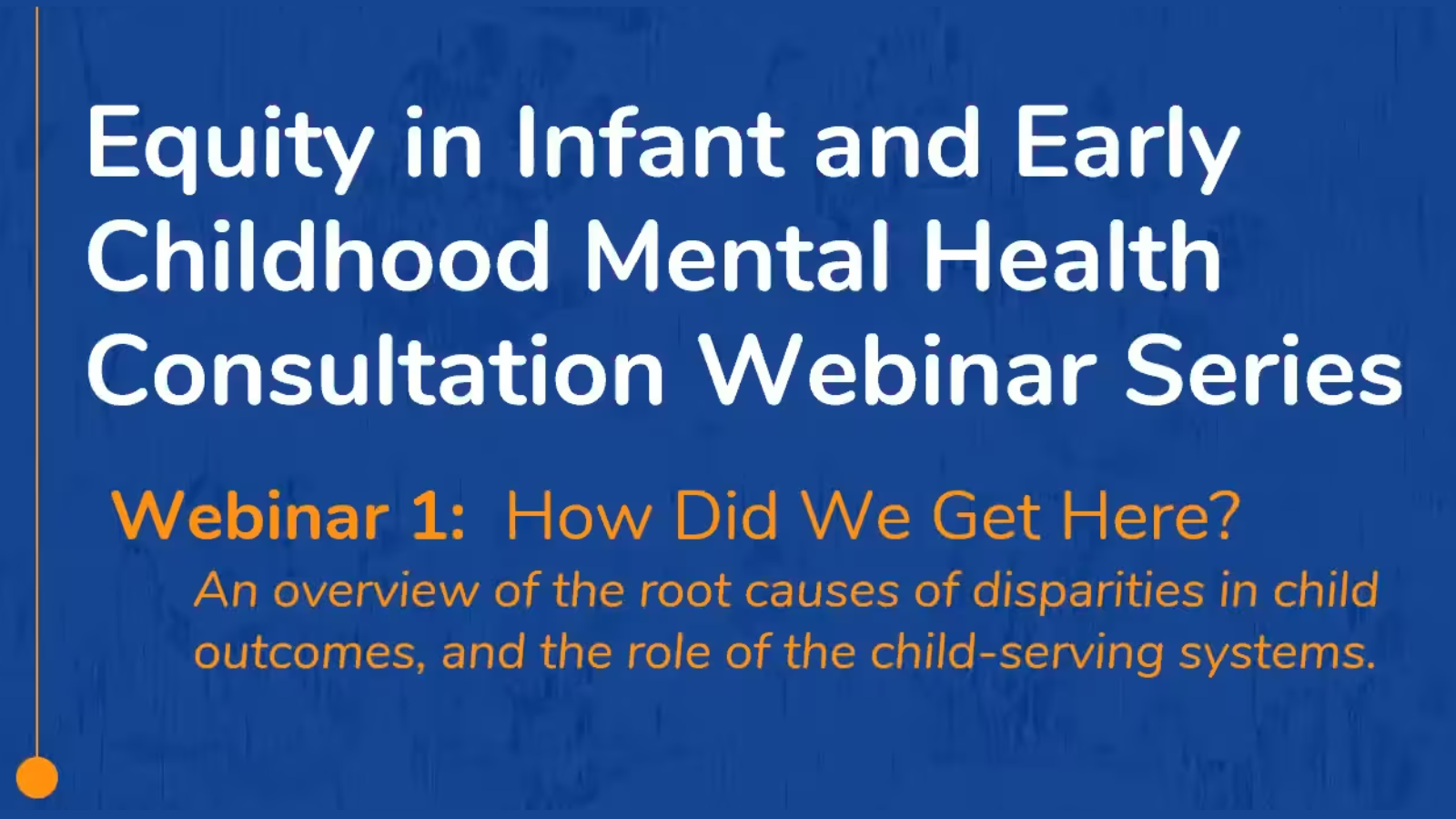
Equity in Infant and Early Childhood Mental Health Consultation Webinar Series
In partnership with the Center of Excellence for Infant & Early Childhood Mental Health Consultation, the CEP created a 4-part webinar series that explores the historical and societal institutions of racism in child-serving systems and discusses actionable steps early childhood systems leaders and mental health consultants can take to create anti-racist spaces for our youngest learners.
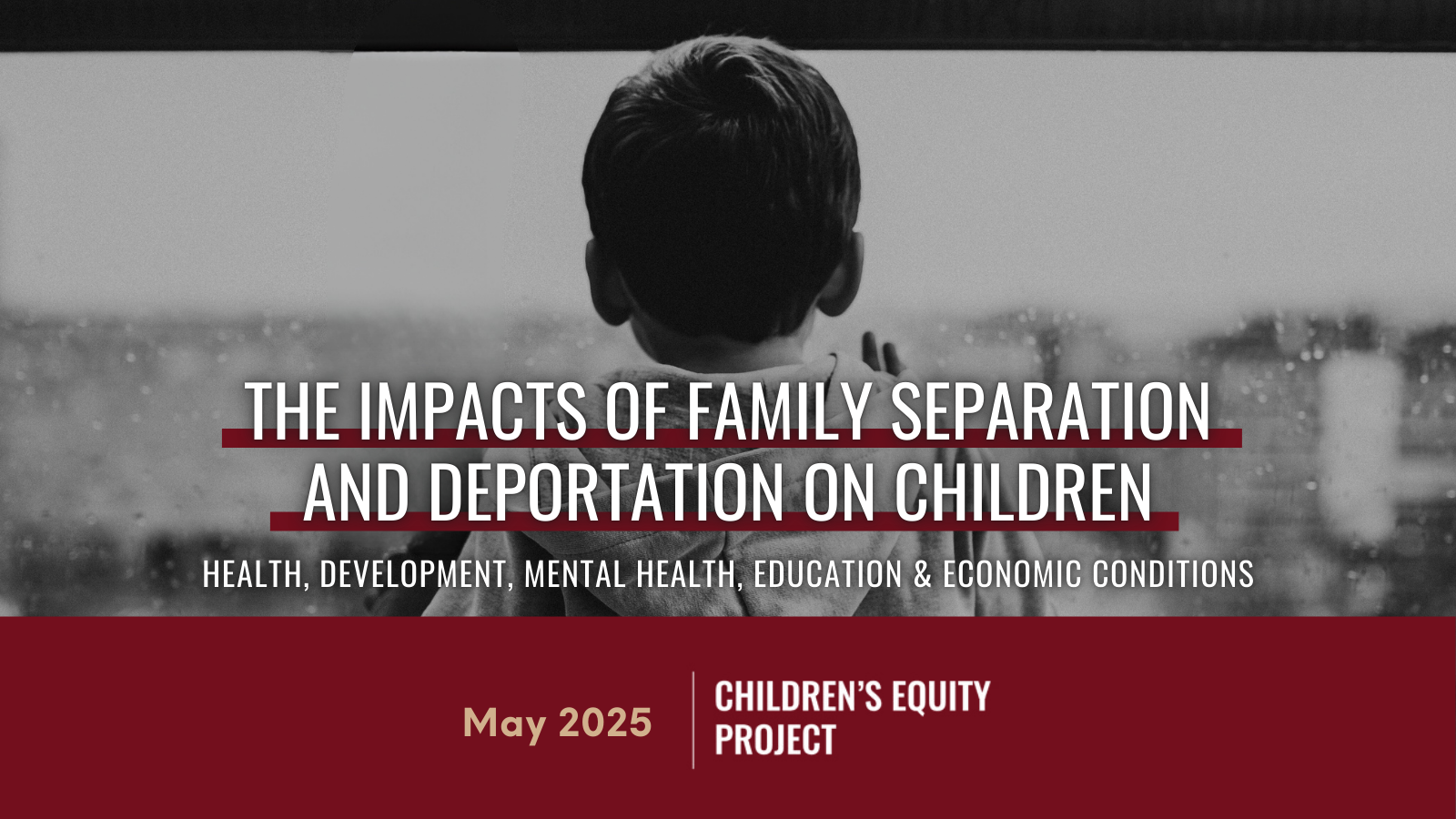
The Impacts of Family Separation and Deportation on Children: Health, Development, Mental Health, Education and Economic Conditions
This brief reviews the latest research on the mental health of immigrant children and families, with an emphasis on the deleterious impacts of deportation and family separation. We review impacts on healthy development, stress (including toxic stress) and mental health, as well as economic security and education.
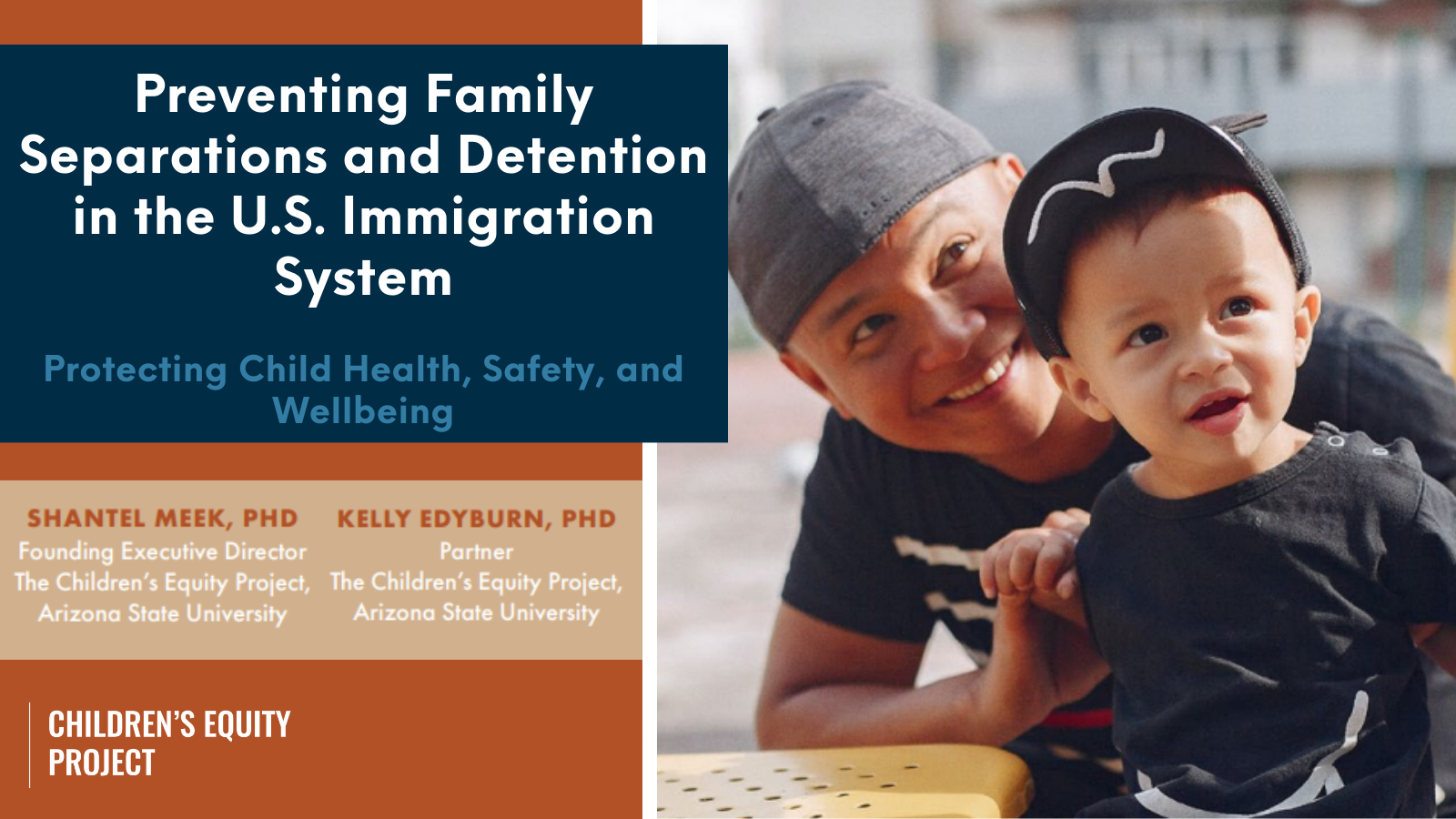
Preventing Family Separations and Detention in the U.S. Immigration System
This brief builds on a 2021 report published by the Children’s Equity Project that reviewed federal and state regulations pertaining to the shelters that house unaccompanied children, including those who have been separated from their families by immigration authorities, under the jurisdiction of the U.S. Department of Health and Human Services Office of Refugee Resettlement.
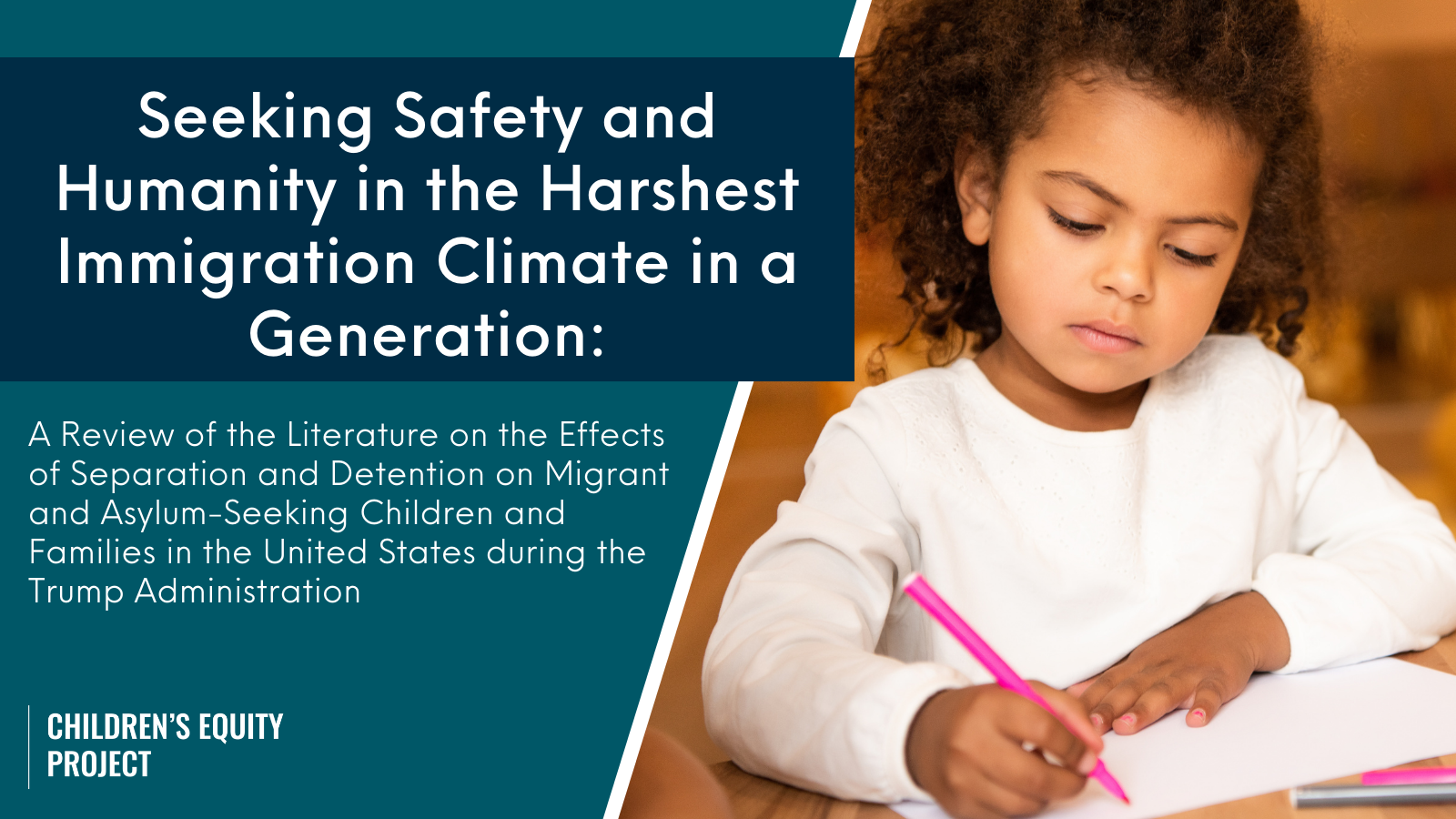
Seeking Safety and Humanity in the Harshest Immigration Climate in a Generation
In recent years, families with children from the Northern Triangle countries of Central America constitute a large and growing proportion of migrants and overall filed asylum claims. In an effort to deter overall immigration through the U.S.–Mexico border, the executive branch under the Trump administration has made substantial changes to federal immigration and asylum policy in recent years. Learn more about this issue and more in our report.

The Scars of Family Detention and Separation in the U.S. Immigration System
This research brief describes the developmental impacts of child separation and detention, and provides context to this research using available data on the number of children currently separated and detained and the now widely reported conditions in these detention centers.

Supporting Mental Health and Wellbeing: Immigrant Children and Families in Early Care and Education Settings
This research-informed brief focuses on establishing a healthy mental health climate that is responsive to children’s and staff’s needs and provides practical recommendations for program leaders, including center-based and home-based child care providers, early childhood educators, and mental health coaches, consultants, and other professionals who support frontline staff.

Federal Policy and State Licensing Standards for the Operation of Residential Facilities Housing Unaccompanied Migrant Children
The CEP published a national analysis of the complicated state and federal rules that govern the treatment and quality of care in shelters housing immigrant children who come to the United States on their own or who are separated from their parents or another adult they are traveling with upon arrival. The analysis takes a developmental lens, examining factors that are most likely to affect child development, health, and wellness.

National Equity Landscape of State Exclusionary Discipline Policies Across Pre-K–12 Contexts
The CEP's new report provides an in depth look at state discipline policies in Pre-K-12th grade systems. We identify patterns and trends over time across 4 key categories 1) Student behavior incidents, 2) Grade limits on exclusion, 3) Limits on the length of exclusion, 4) Alternatives to harsh discipline. We also take a look at the last 5 years of policy trends between 2018 and 2023.

Harsh Discipline and its Disproportionate Application in the Early Years and Early Grades
In this report, we analyze discipline data and policy implications nationally, as well as at the state and local levels. We specifically focus on identifying and closing disparities that Black children, other children of color, and children with disabilities face within learning systems across an array of harsh discipline types, including suspension, expulsion, corporal punishment, seclusion, and restraint.

The Price of Punishment: Days Missed Due to Suspension in U.S. K-12 Public Schools
In this report, we analyze the 2017–2018 national sample, about 11 million days of school were missed due to suspension. Rates of DMS varied across the regions of the U.S., from state to state, and from school to school (greater in nonelementary and non-charter public schools).

The Preschool (and Beyond) Exclusionary Discipline Study (PEDS) - Report 2
Out-of-school suspension (OSS) is a severe yet fairly common form of student discipline that prohibits students from being at school or participating in school-related activities for a specified number of days. In this report, we dive deep into the effects OSS has on our young learners.

A Holistic Approach to Ending Exclusionary Discipline for Young Learners
In this new report, the Children's Equity Project's reviews the state of the data, explores root causes, and presents a multidimensional, holistic framework that policymakers can use to make meaningful progress in reducing the rate, and importantly, eliminating disparities in exclusionary discipline.

Harsh Discipline and its Disproportionate Application
This policy brief reviews the data, research, and policy landscapes of harsh discipline including suspension, expulsion, corporal punishment, seclusion, and the inappropriate use of restraint. It provides a robust policy agenda to reduce its use.

The Preschool (and Beyond) Exclusionary Discipline Study (PEDS) - Report 1
In this report, e analyzed data related to the use of OSS in U.S. public elementary schools and found that use of OSS in early grades of schooling was a little over 26 cases per 1,000 students enrolled, a total of more than 672,000 cases nationwide in 2017-2018.

The Science of Reading and Dual Language Education: Supporting Multilingual Learners' Language and Literacy Development
This report reviews the state of the science and the state level policy on the Science of Reading (SOR) as it applies to emergent bilingual children, those in early childhood learning two languages at the same time (dual language learners), or those in K-12 learning English as a second language (English Learners).

Immediate Actions The Biden Administration Can Take For DLLs
The CEP, Early Edge California, UnidosUS, and fellow Dual Language Learner (DLL) policy leaders have released, Immediate Actions the Biden Administration Can Take for DLLs, a new set of federal policy recommendations to support DLLs now.
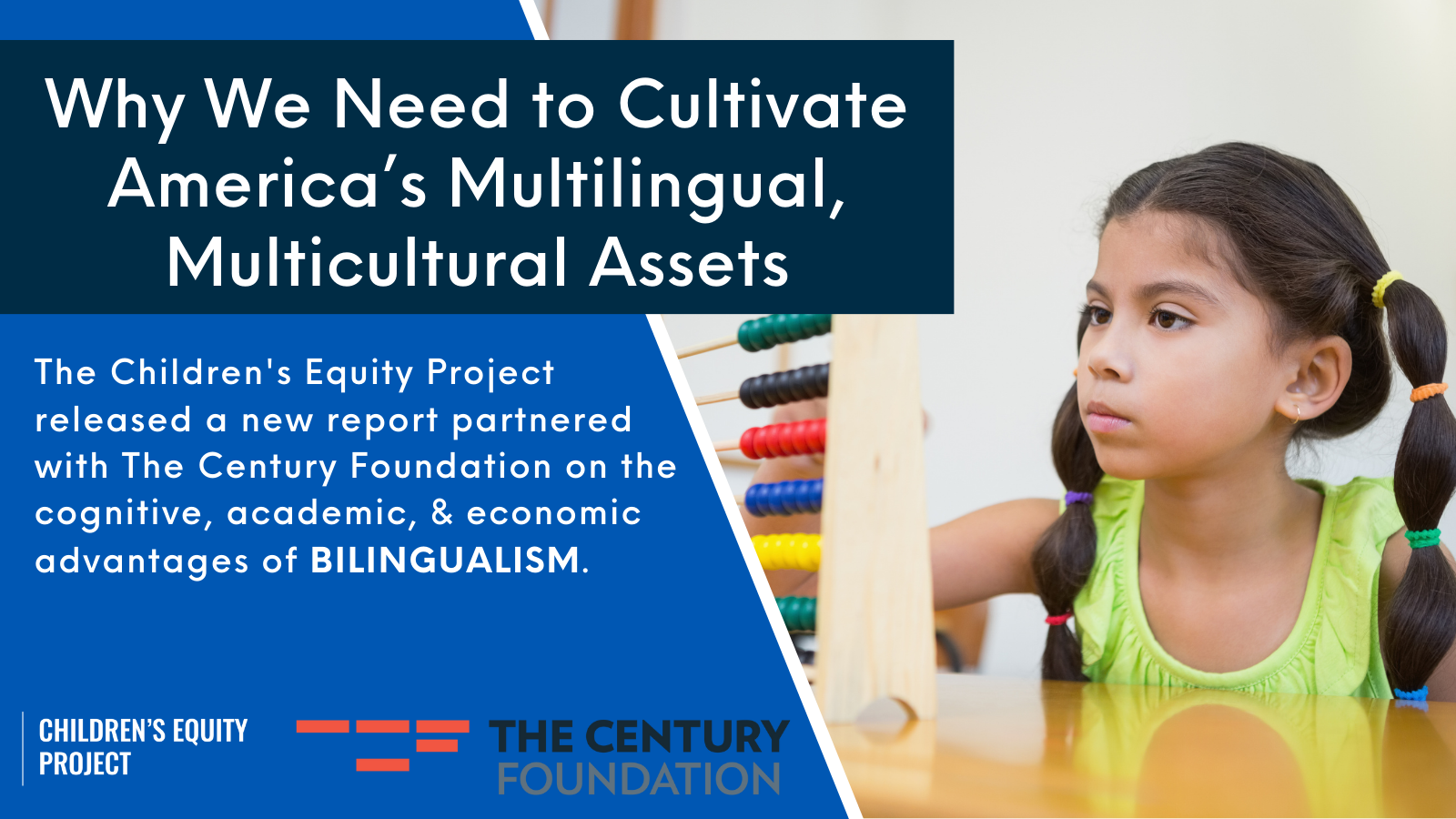
Why We Need to Cultivate America’s Multlingual, Multicultural Assets
The Century Foundation and the Children’s Equity Project, published a new report: "Why We Need to Cultivate America’s Multlingual, Multicultural Assets". This new report analyzes the benefits of supporting young children's bilingualism and why we need to cultivate multilingual and multicultural assets in the U.S.

Equitable Access to High-Quality Learning Opportunities for DLLs and ELs
This policy brief reviews the data, research, and policy landscapes of bilingual learning opportunities for dual language and English learners and provides a robust policy agenda to equitably expand access to such opportunities.

Habla DLL
Promoting the Success of Dual Language Learners: Bilingual resources for parents, early childhood educators, and therapists to promote the language and literacy skills of young children who are DLL.

Federal Funding to Support the Learning and Success of Multilingual Students
This report warns that proposed federal budget cuts would dismantle crucial supports for the nation’s 5.7 million English Learners (ELs). Research shows multilingual students make significant academic gains when supported, but cuts risk reversing this progress. The report also highlights threats to migrant programs and services for ELs with disabilities, urging policymakers to expand—not reduce—investments to ensure equity, uphold civil rights, and strengthen America’s linguistic and economic future.
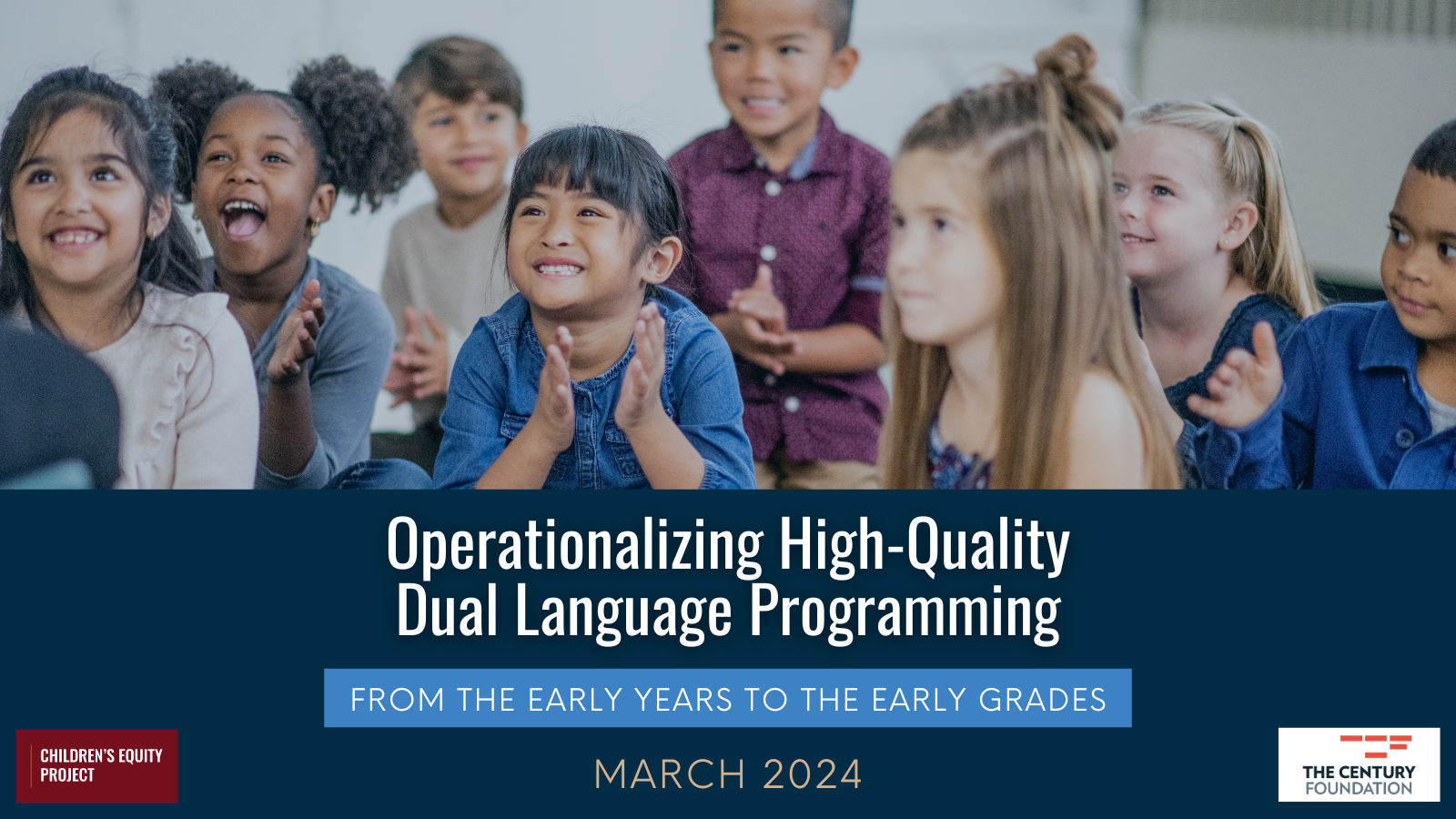
Operationalizing High-Quality Dual Language Programs
In this new report, The Children’s Equity Project, in partnership with The Century Foundation and dozens of research and practitioner partners, operationalizes high-quality dual language education for young emergent bilinguals. We use a seven-part comprehensive framework that includes programmatic structures, curriculum and assessment, language allocation, family leadership and engagement, and more.
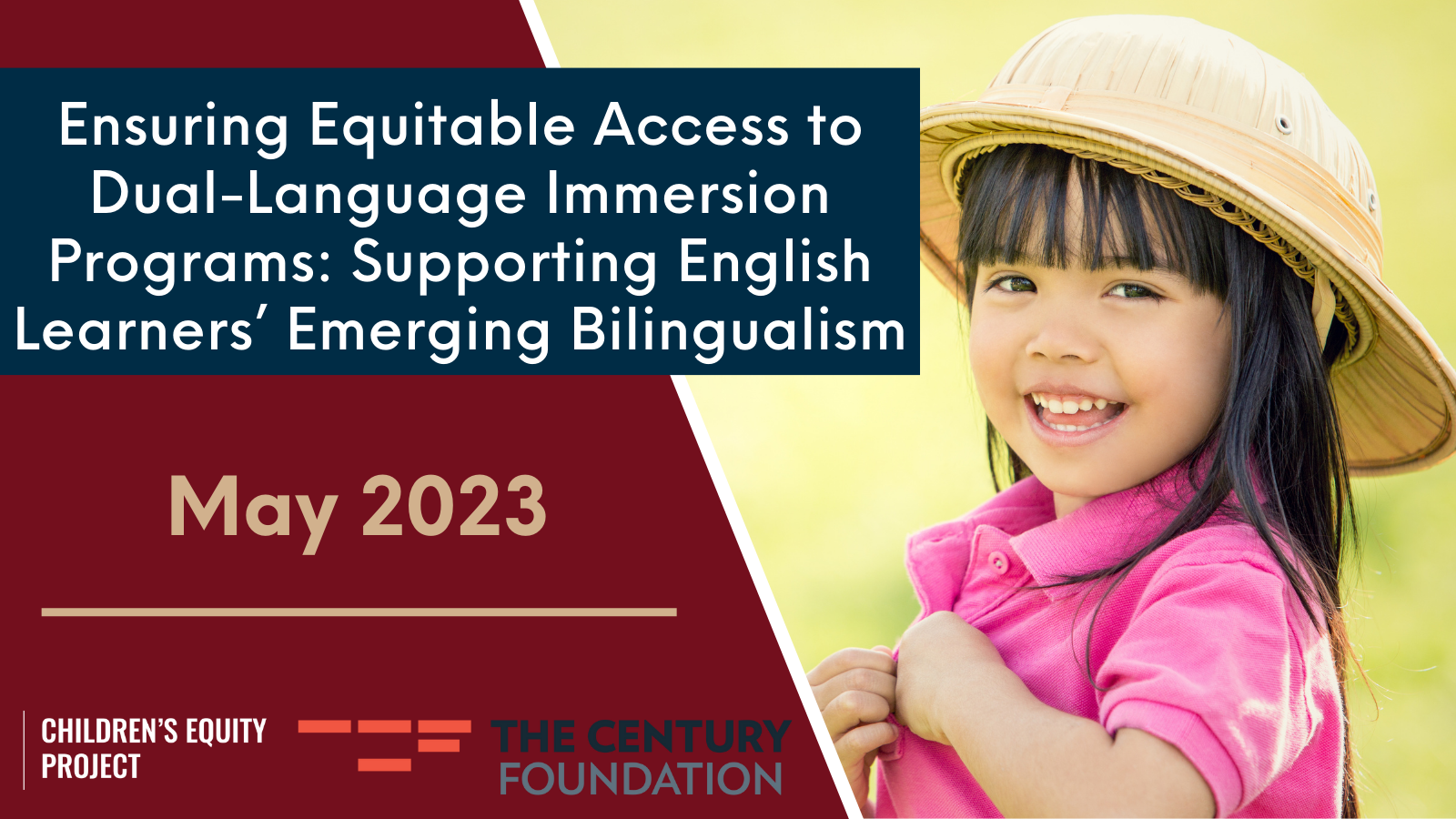
Ensuring Equitable Access to Dual-Language Immersion Programs: Supporting English Learners' Emerging Bilingualism
The Century Foundation and the Children’s Equity Project, with generous funding from the WK Kellogg Foundation, published a new report: "Ensuring Equitable Access to Dual-Language Immersion Programs: Supporting English Learners' Emerging Bilingualism".
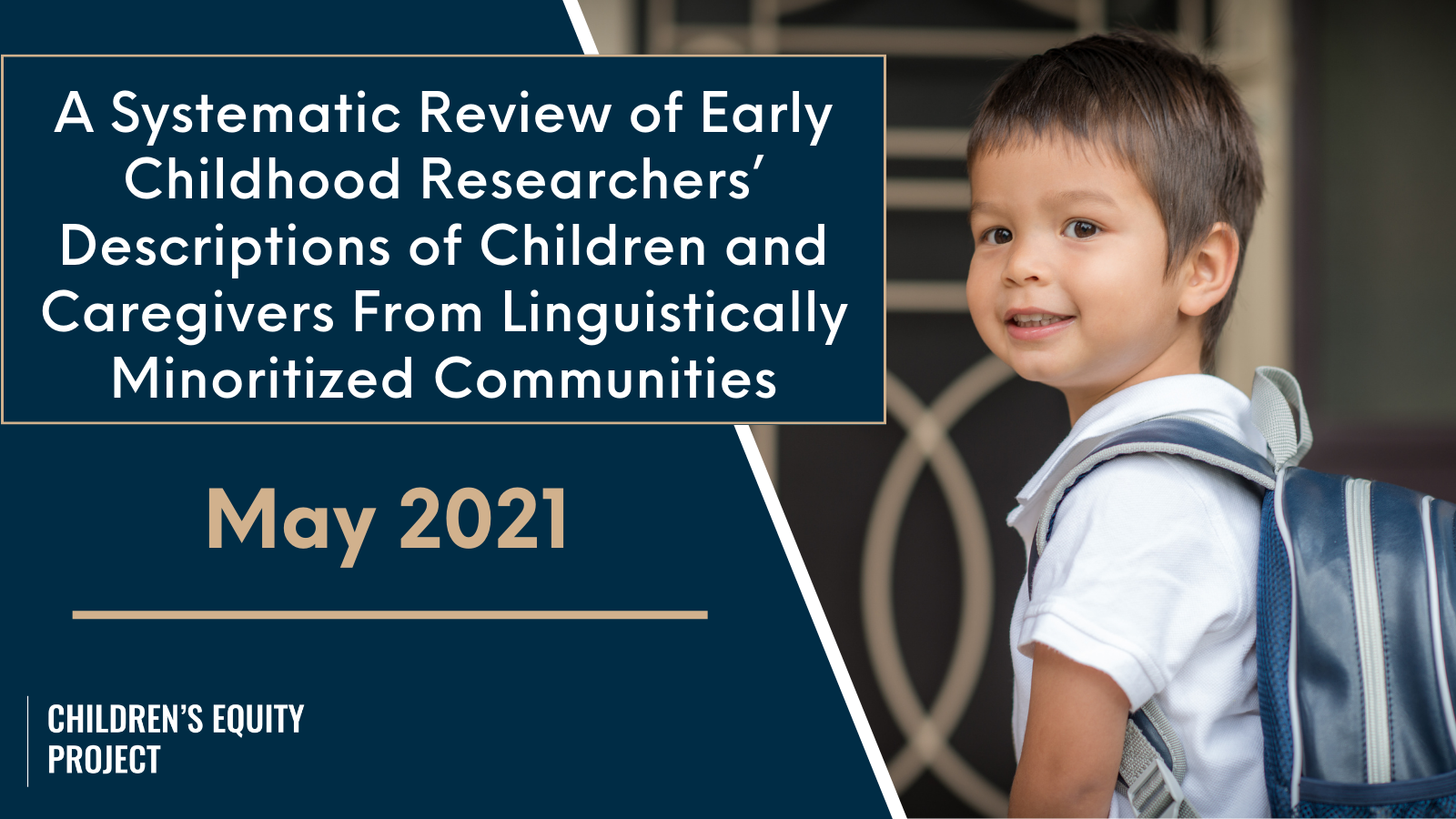
A Systematic Review of Early Childhood Researchers’ Descriptions of Children and Caregivers From Linguistically Minoritized Communities
The purpose of this systematic review was to identify how researchers describe these children and their caregivers. Thirty research studies were included in the review. Each study was published in Infants and Young Children, Journal of Early Intervention, or Topics in Early Childhood Special Education between 1988 and 2020.

Beyond Castañeda and the “Language Barrier” Ideology: Young Children and their Right to Bilingualism
Notwithstanding the important progress it marked in advocating for greater resources for English learners and accountability for education systems, the central goal of the Castañeda Standard, to “overcome language barriers that impede equal participation in educational programs” is fundamentally flawed.

Review of Policy Effects on Black Families and Children: Advancing the Black Child National Agenda
This report advances the Black Child National Agenda, developed in 2021 by the Equity Research Action Coalition and other partners, by examinining major policies and programs in the United States that impact the lives of Black children and families based on the access, experiences, and outcomes framework. Specifically, this report examines Black children and families’ access to, experiences in, and outcomes associated with policies and programs in four major domains: 1) education; 2) health; 3) housing; and 4) wealth generation, economic security, and economic mobility.

Promoting Black Joy and Countering Bias Through IECMHC
This resource offers strengths-based strategies to support IECMH consultants and programs to create space for Black children and families to reclaim a sense of joy amid continued anti-Black sentiment, racial uprisings, and a health pandemic compounded by historical trauma. Explore this resource to learn promising practices aligned with the Revised IECMHC Competencies to disrupt bias and foster joy specifically for Black children to reduce disparities and improve child outcomes.
Equity and COVID-19: Considering Equity in the Transition Back to School and Early Childhood Programs - Policy Recommendations
The Building a Universal Preschool System Around Head Start brief unpacks the argument for making Head Start the anchor of a new universal system to ensure an equitable, mixed delivery, high-quality, and comprehensive system that optimizes existing funding streams and coordinates new ones to meet this unique moment in history.

Administering the Nation’s Preeminent Education Civil Rights Law for Infants, Toddlers, Children, and Youth with Disabilities: The Essential Role of the Federal Office of Special Education Programs
This report focuses on the critical role of the federal government in administering the Individuals with Disabilities Education Act (IDEA). IDEA, the preeminent education civil rights law for infants, toddlers, children and youth with disabilities, served over 8 million children and youth in 2024.

Maintaining Data to Uphold Civil Rights in Special Education Systems: A Focus on IDEA’s Significant Disproportionality
This report explores significant disproportionality, the urgent need for continued data collection and enforcement of civil rights laws, including IDEA, and the definitive, consistent, longstanding research that shows that disparities continue to exist in special education systems.

Inclusive Learning for Children with Disabilities
This policy brief reviews the data, research, and policy landscapes of the inclusion of children with disabilities in general learning settings, and provides a robust policy agenda to expand access to such opportunities.


